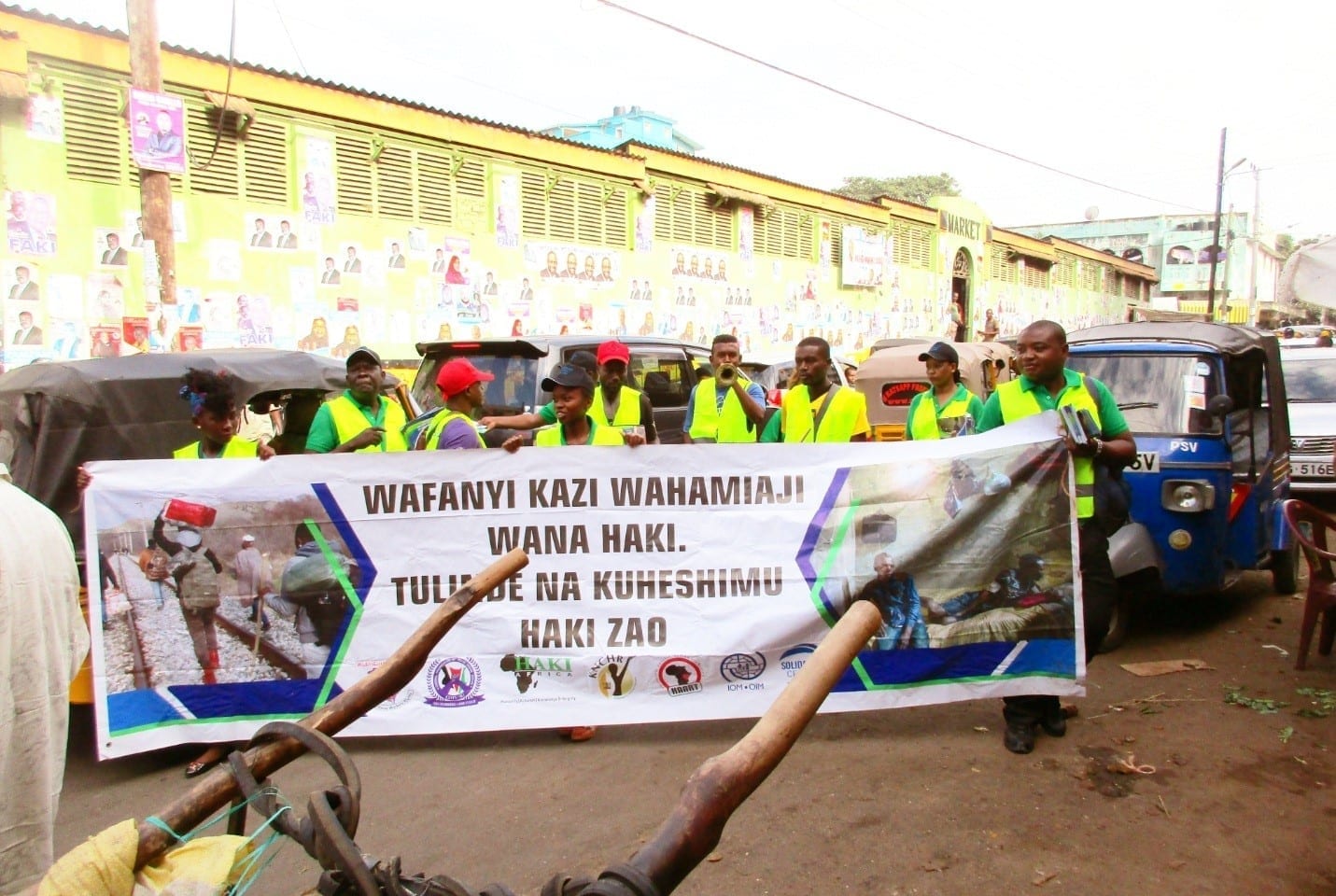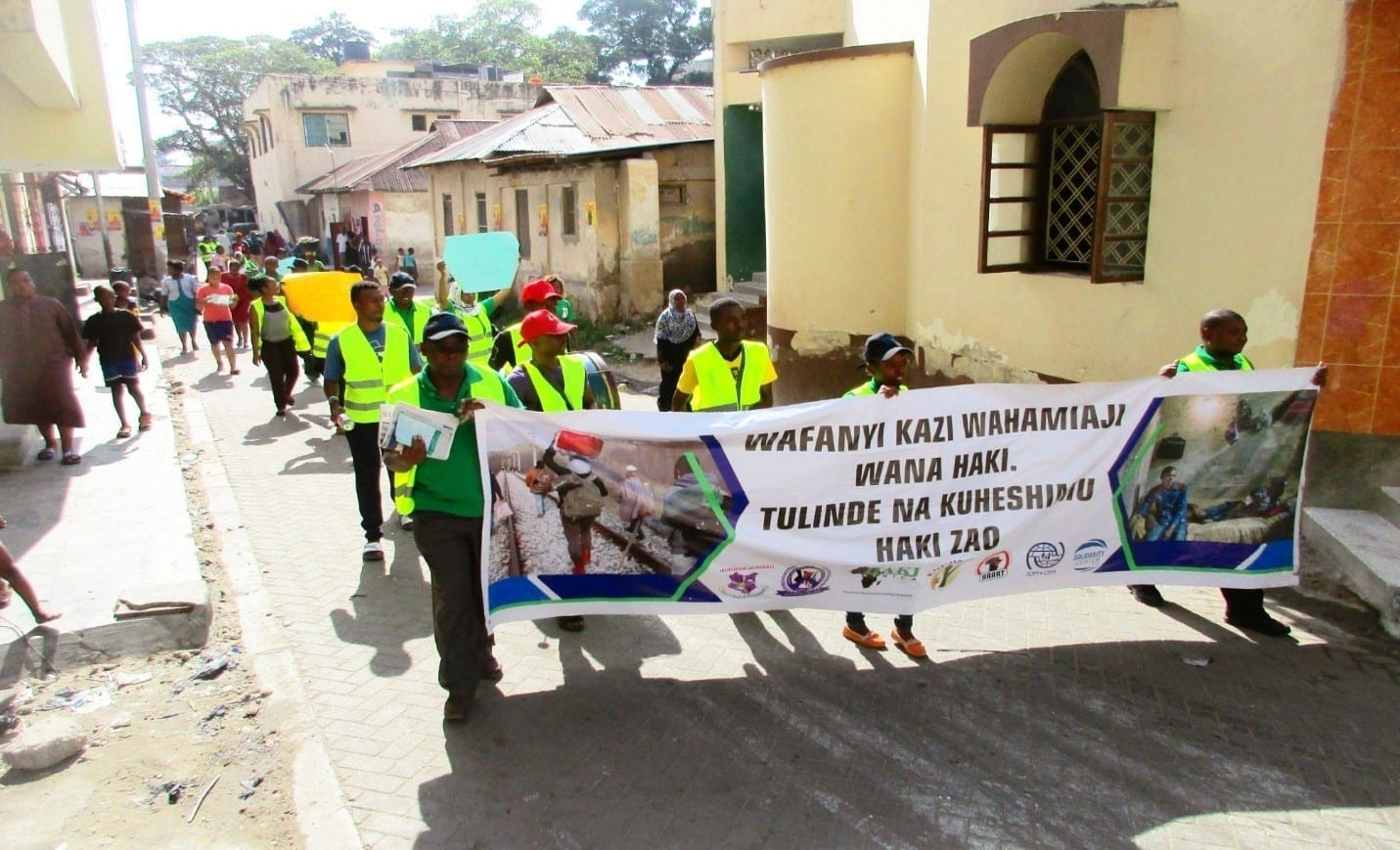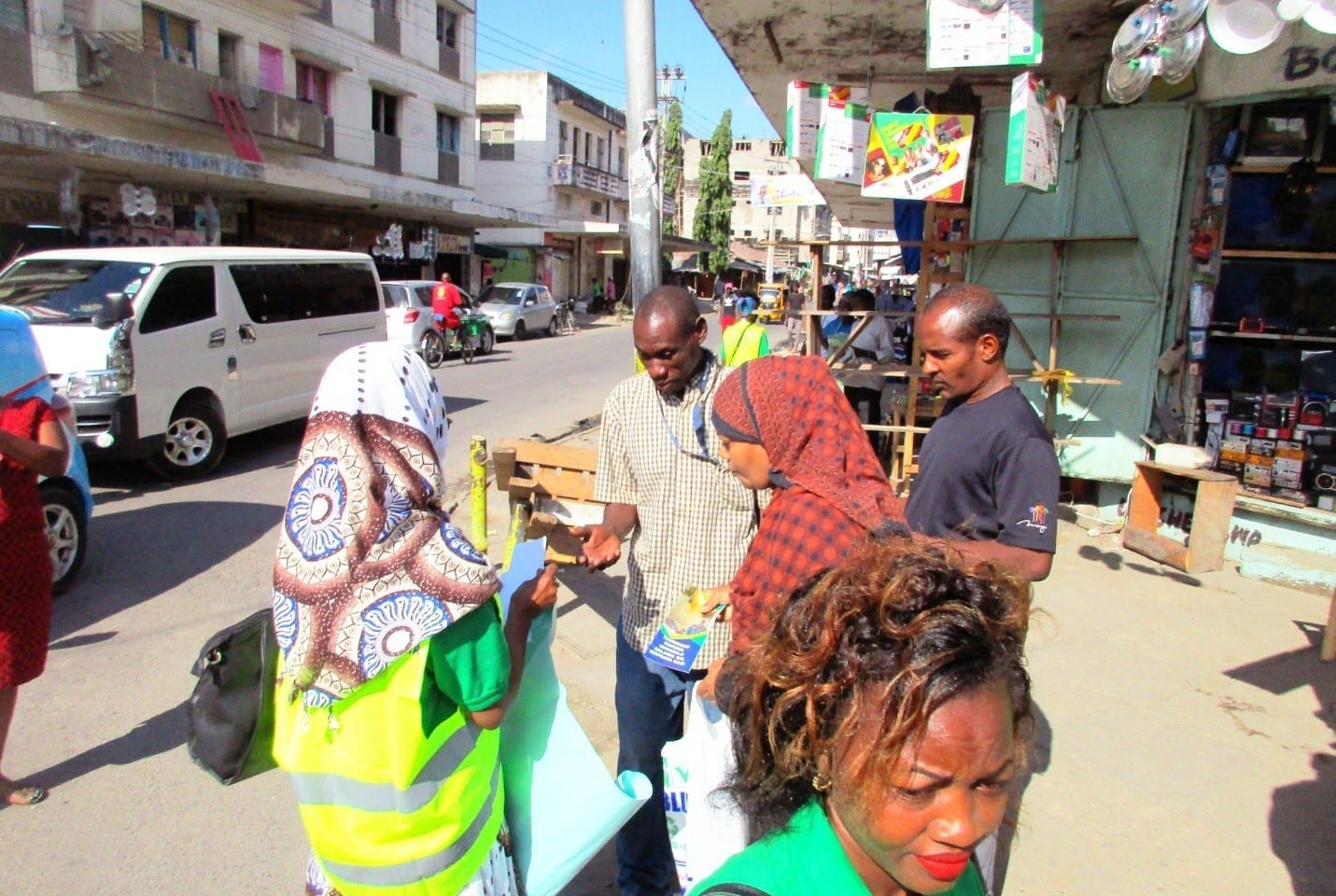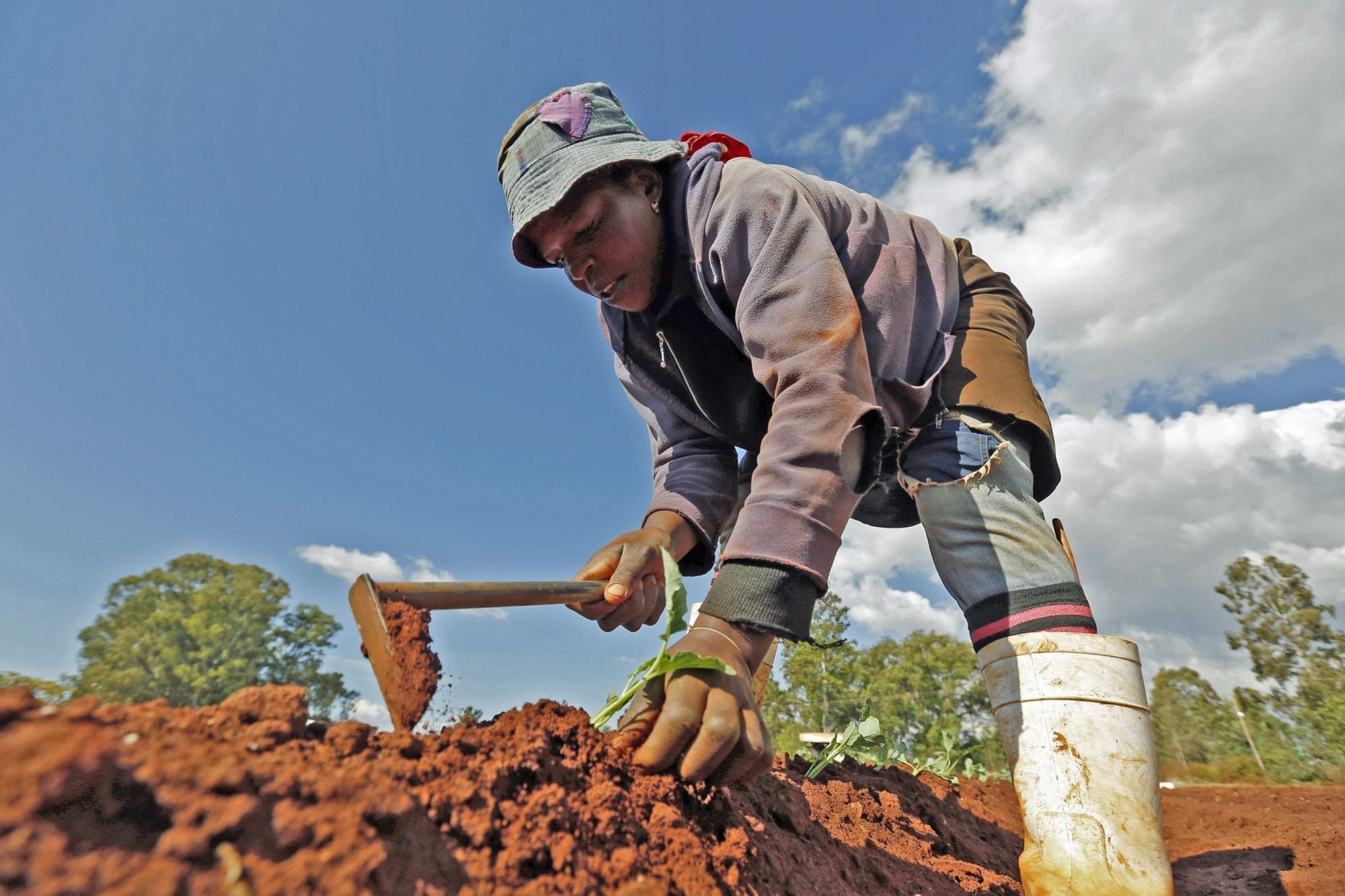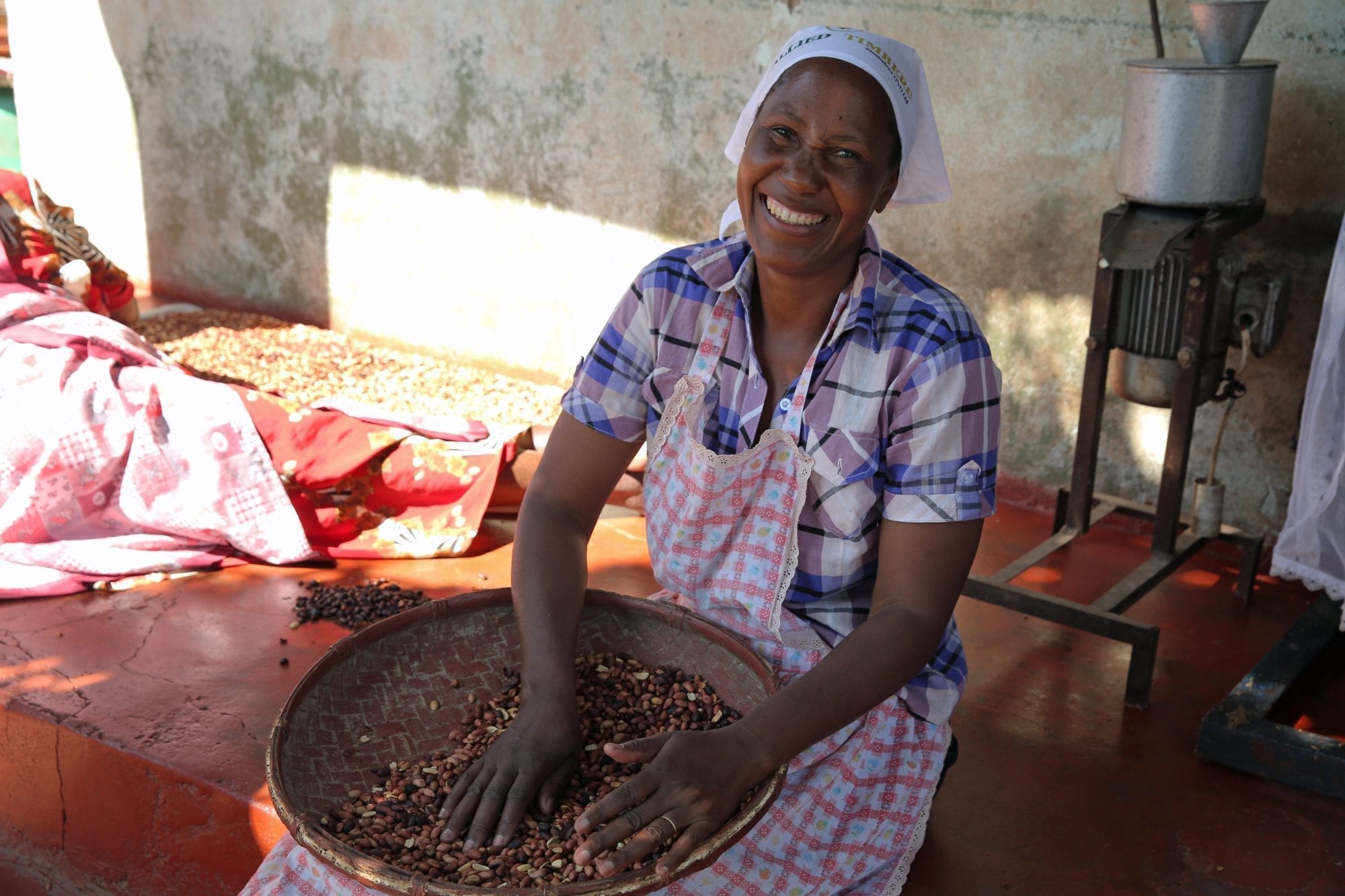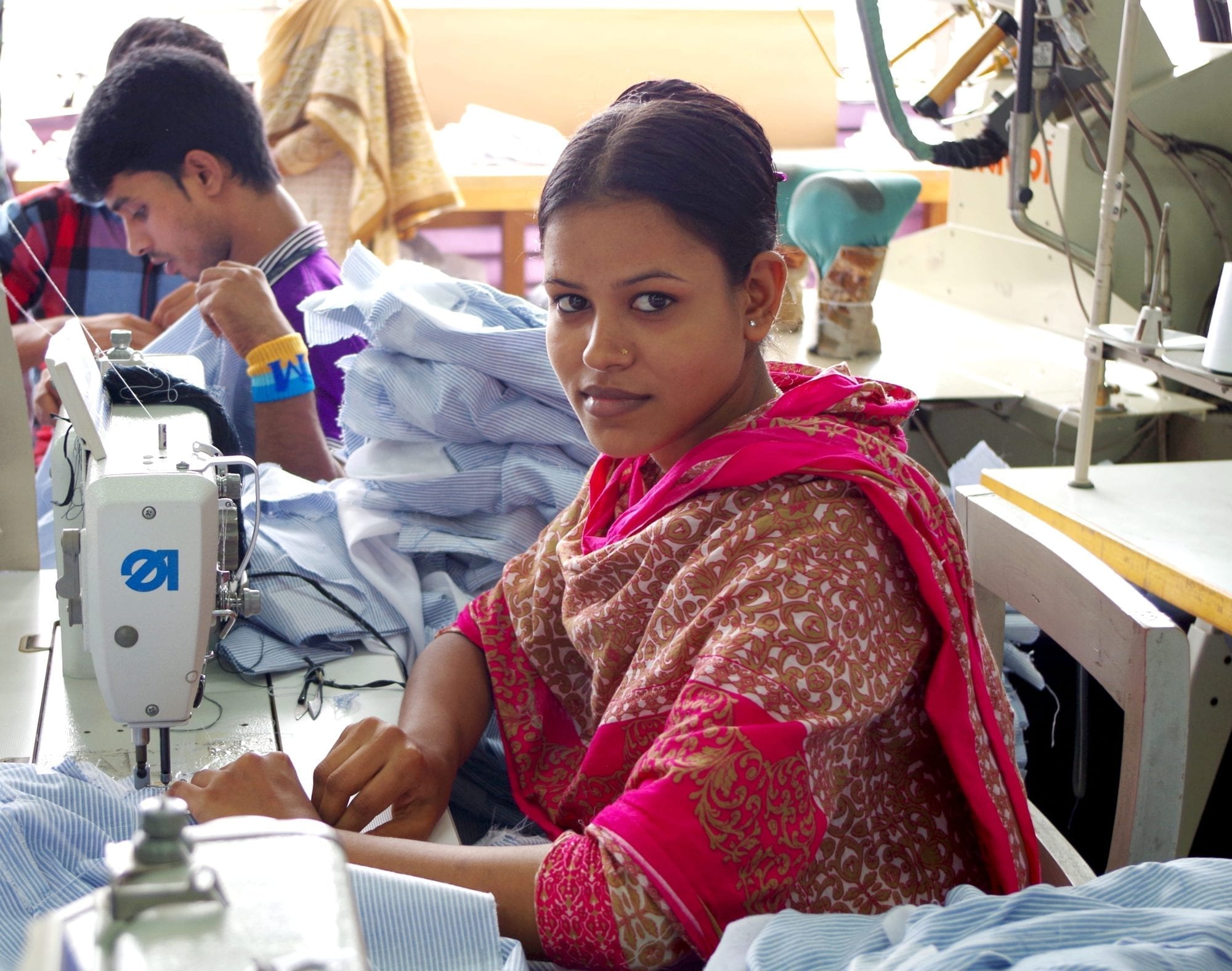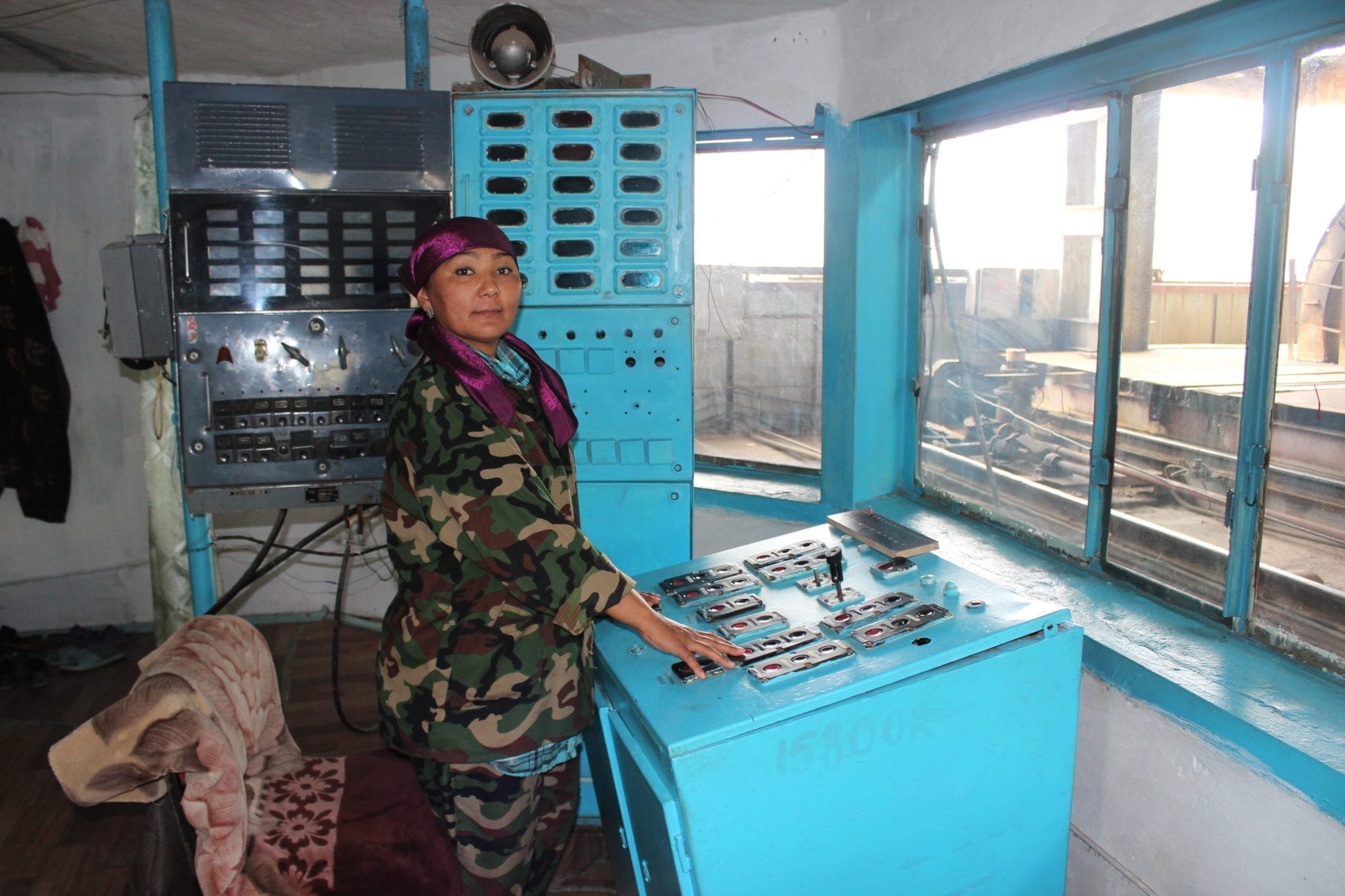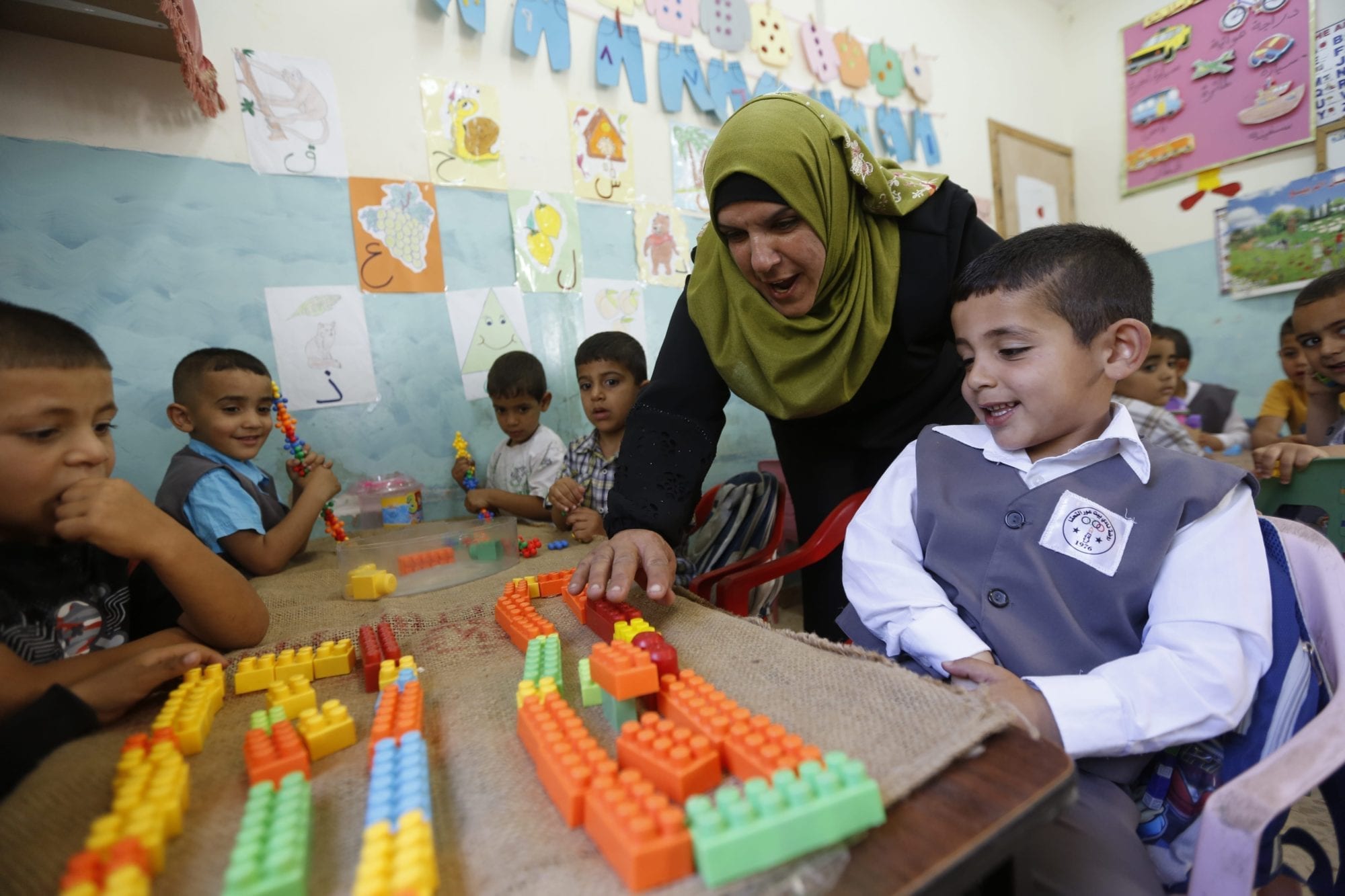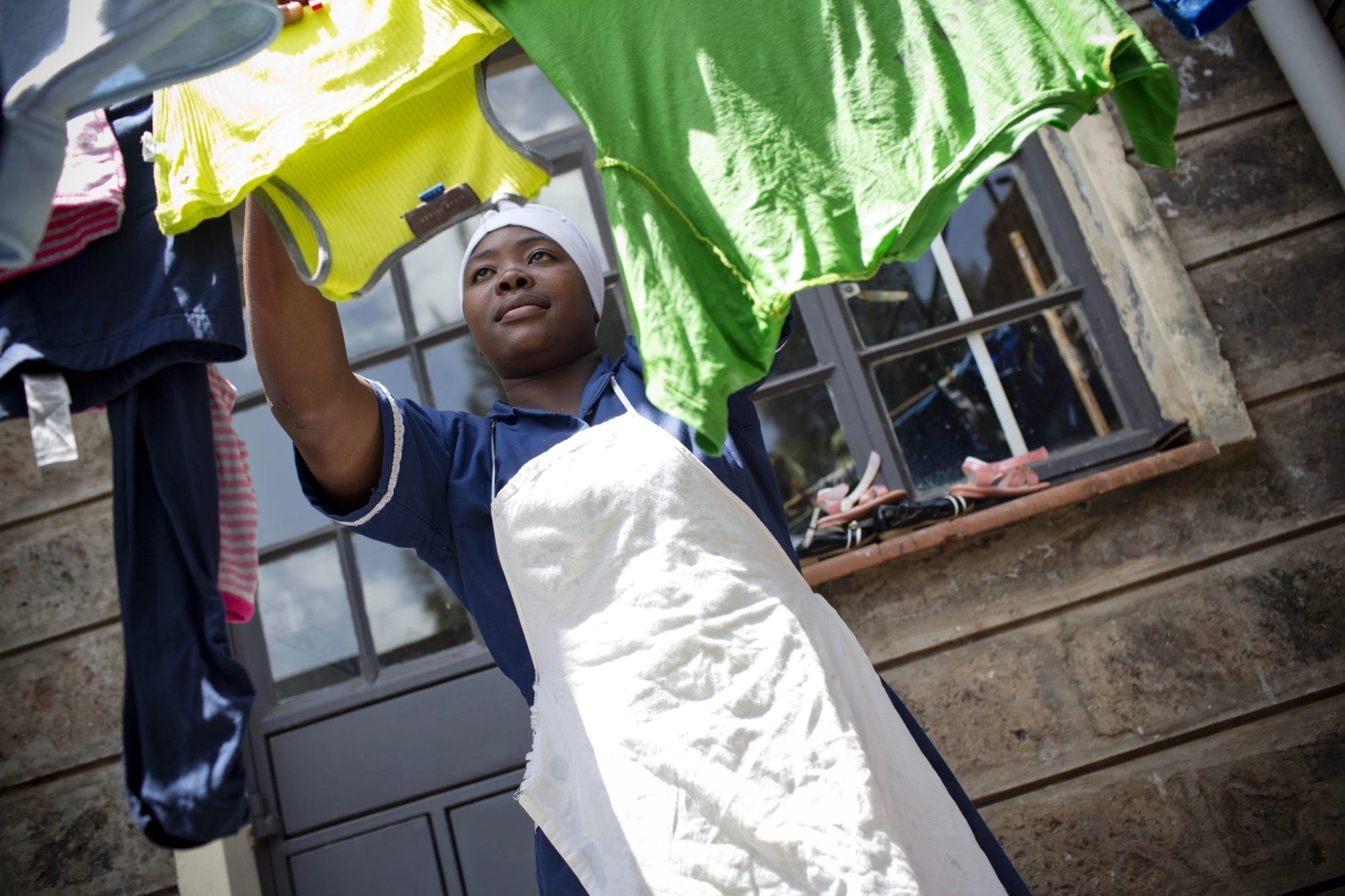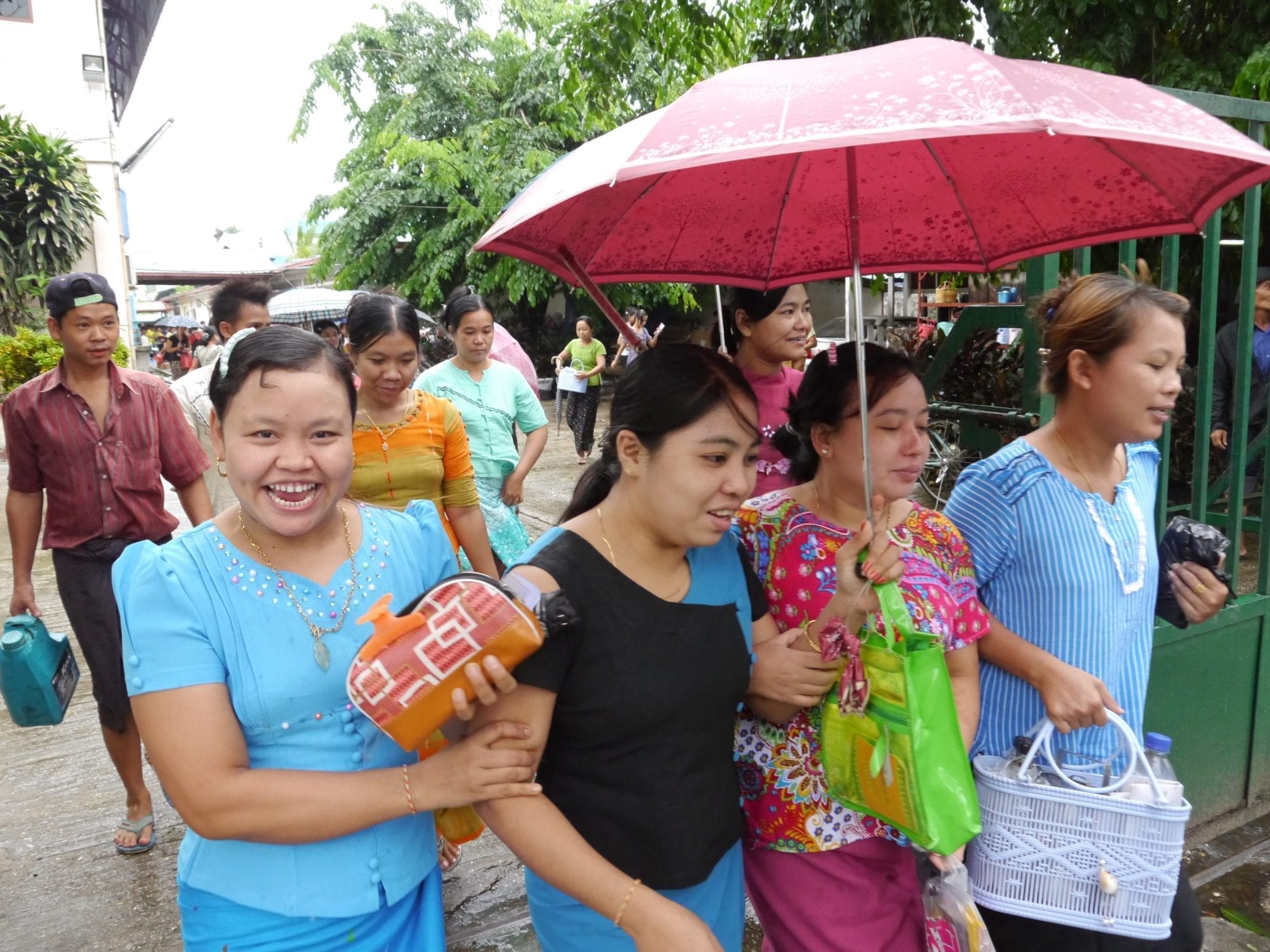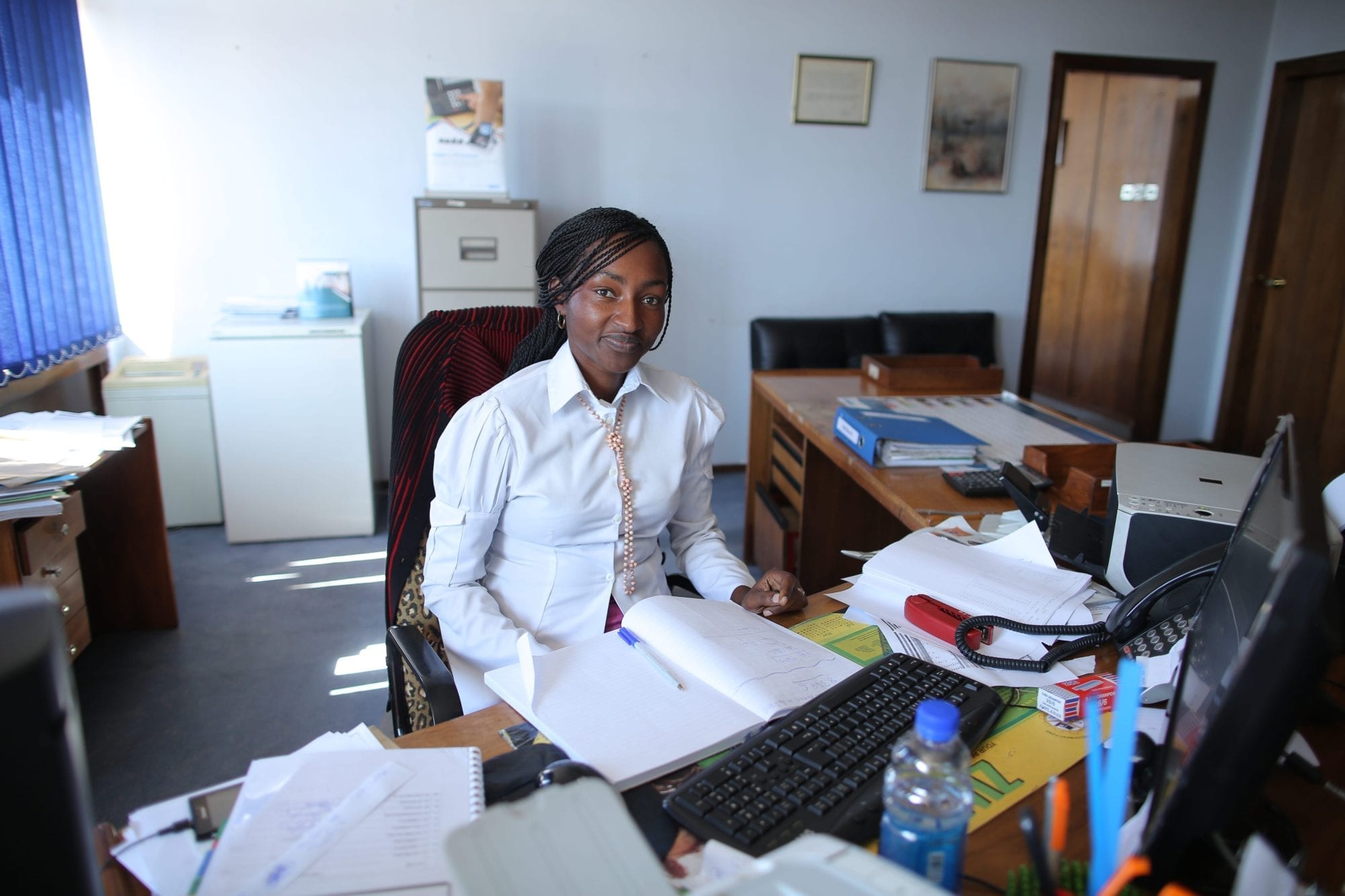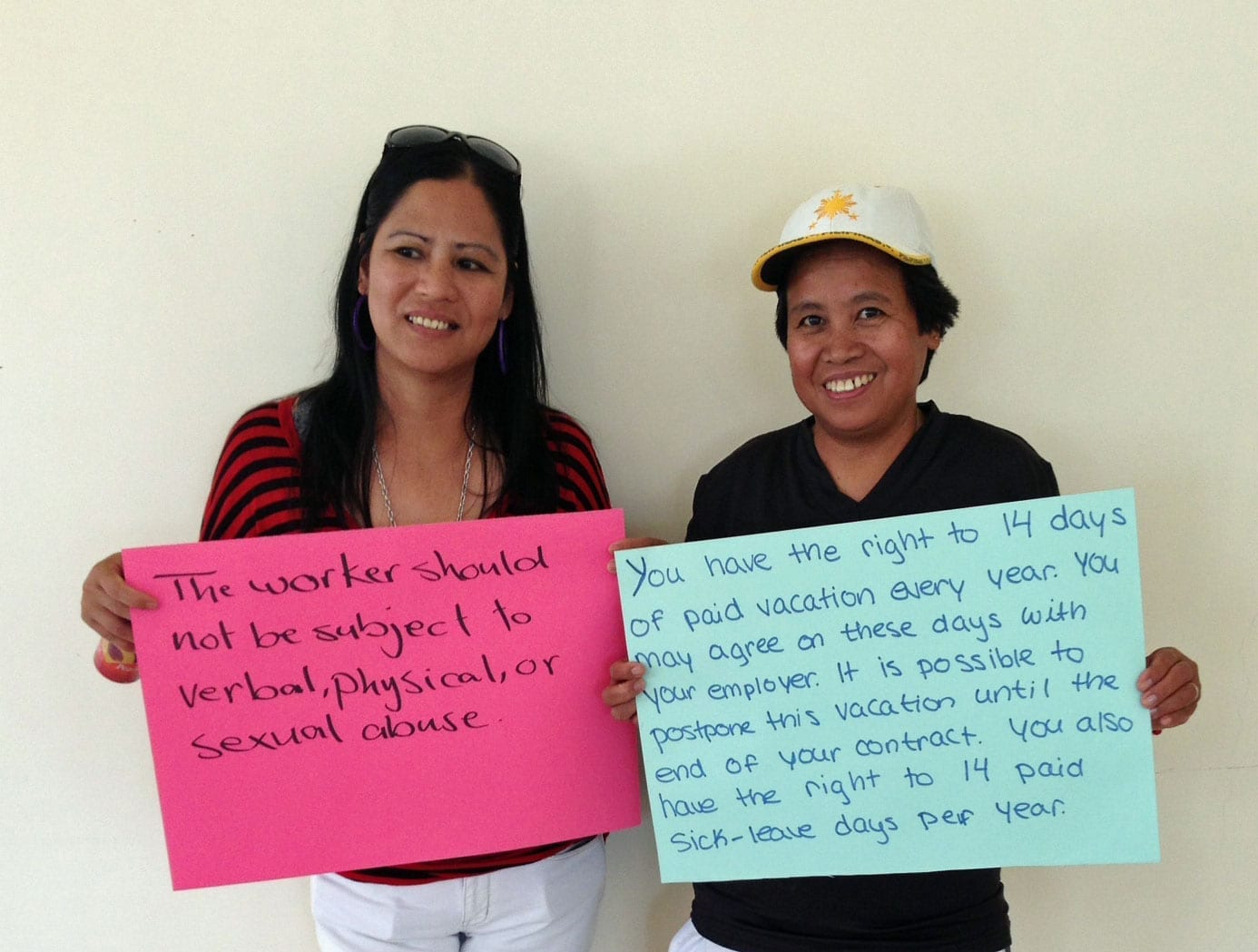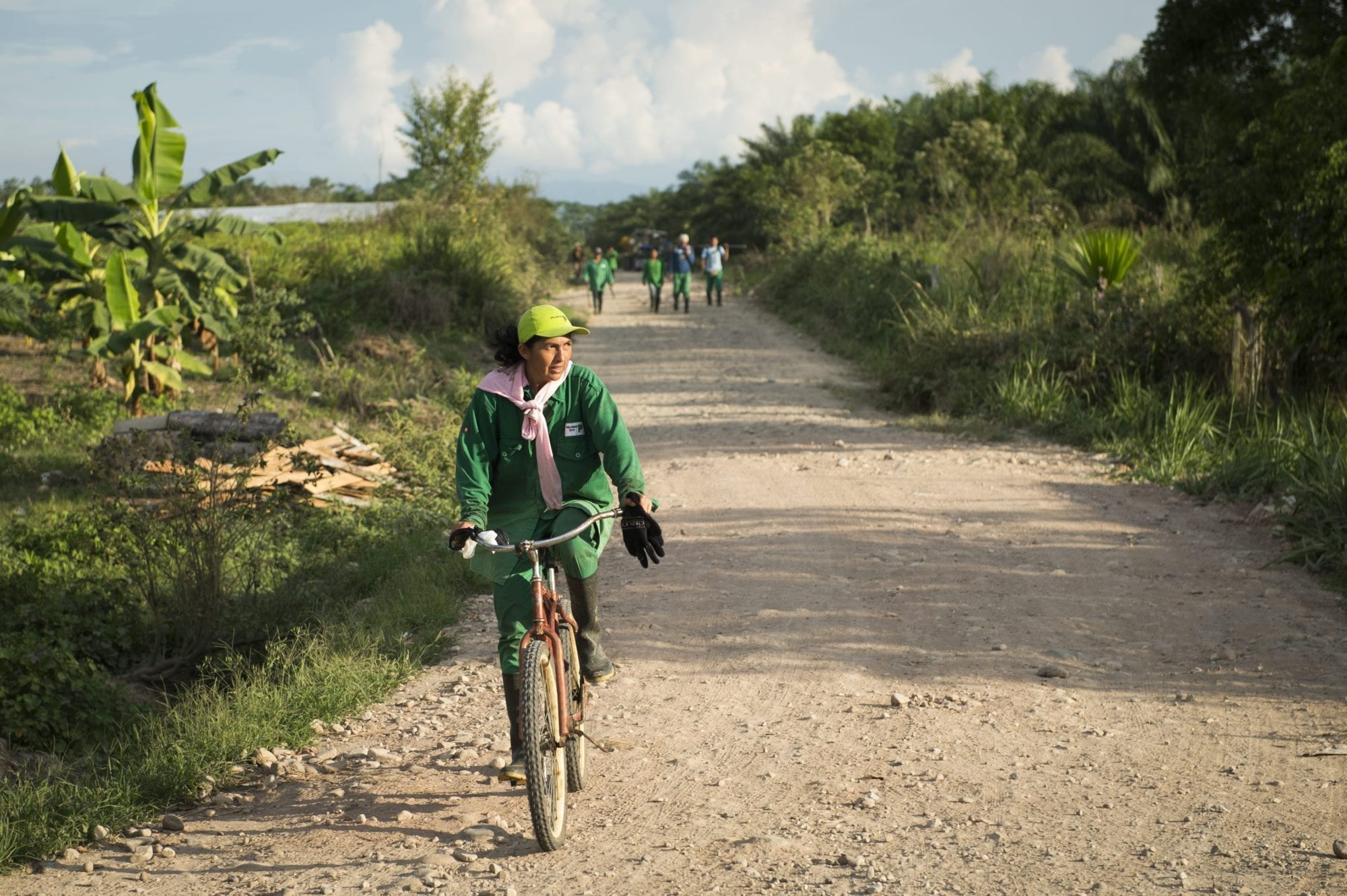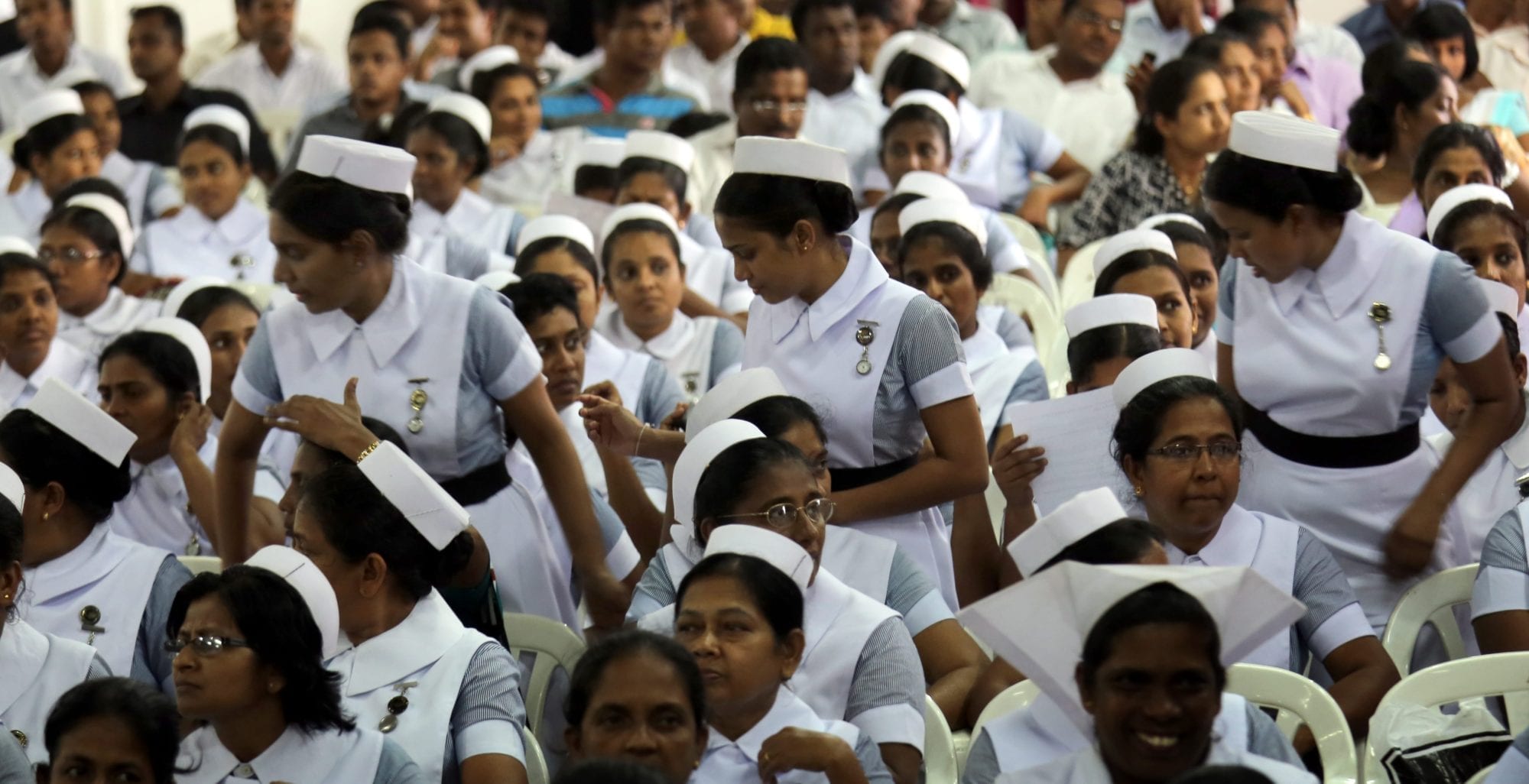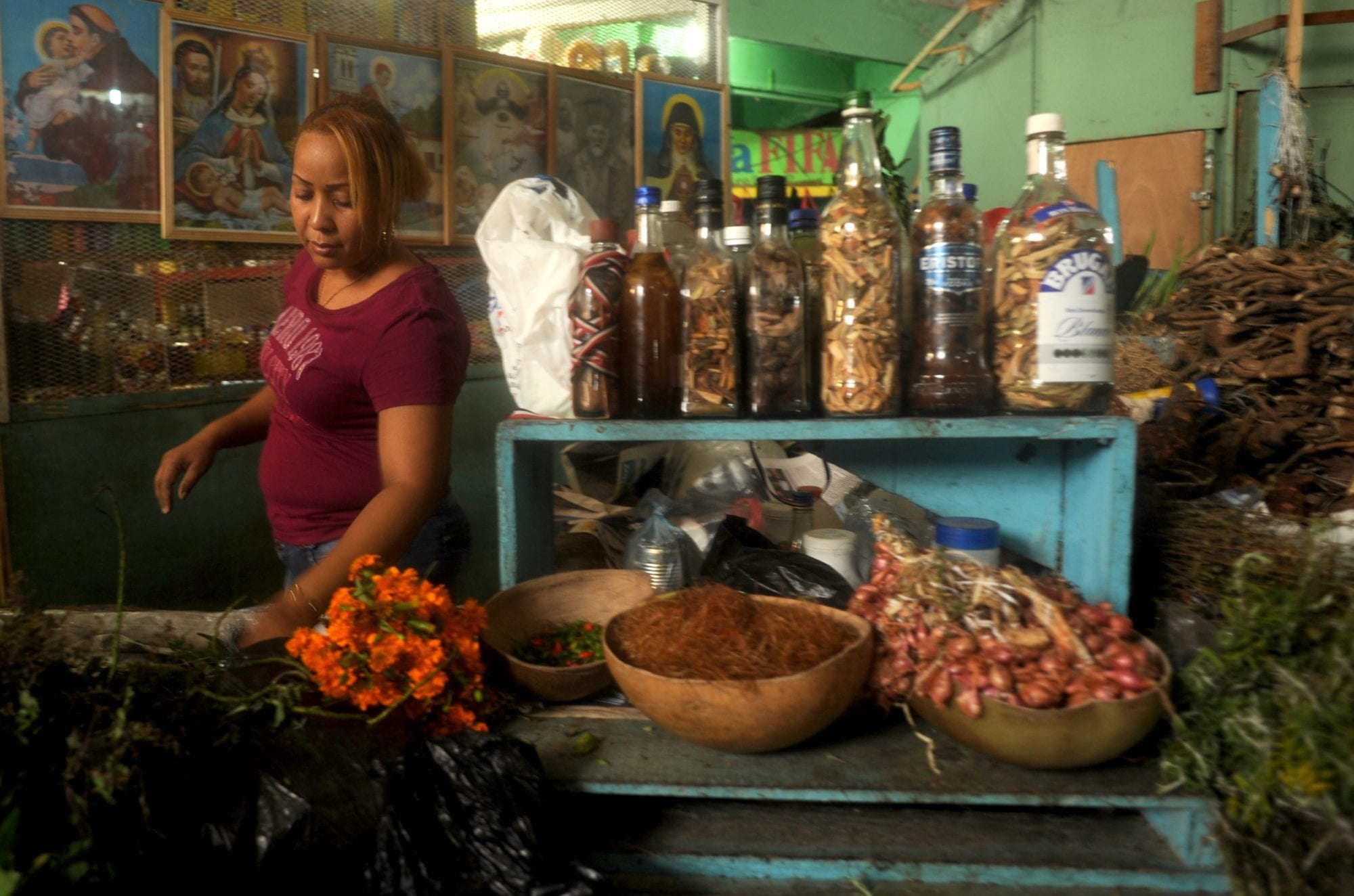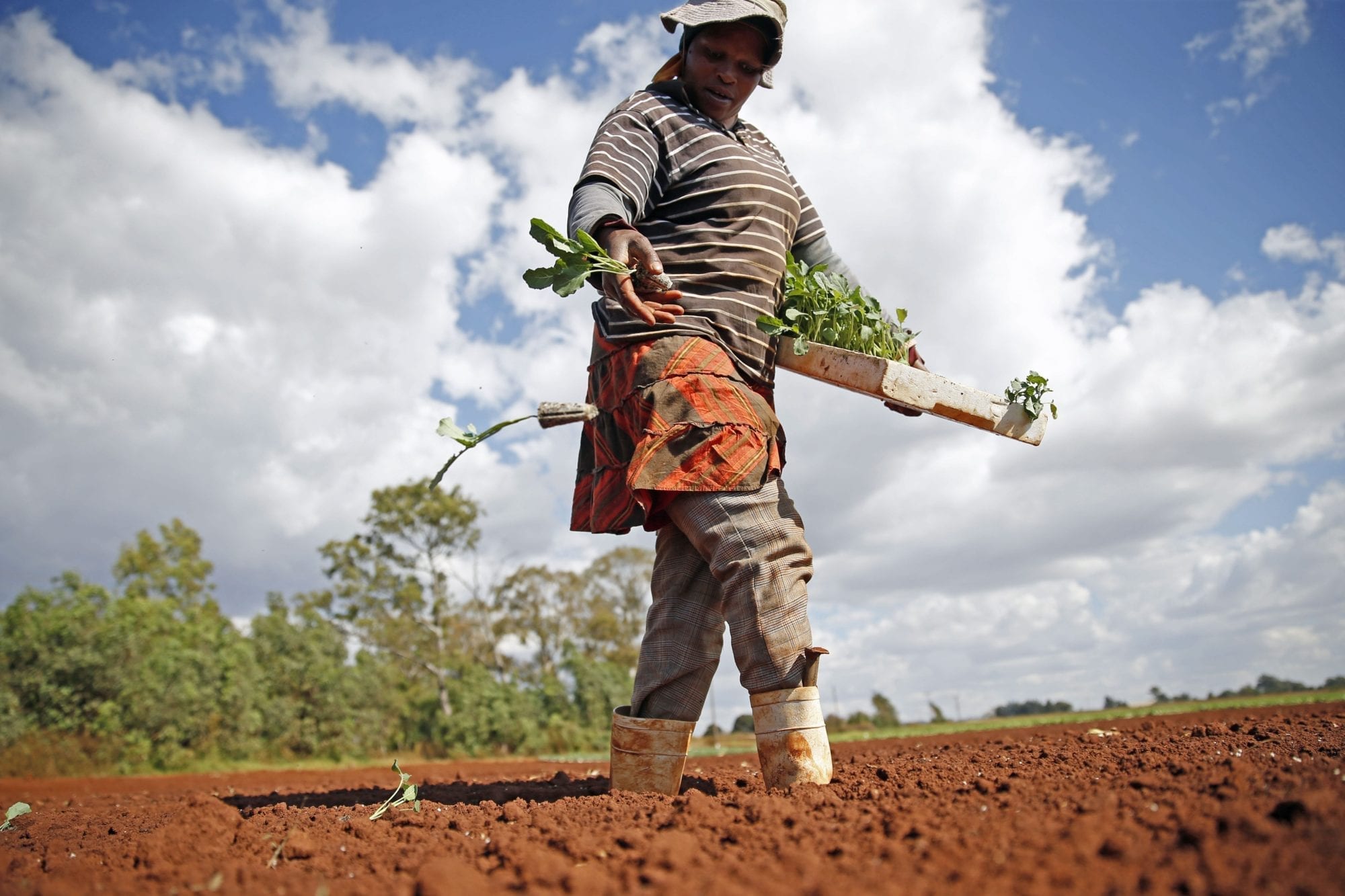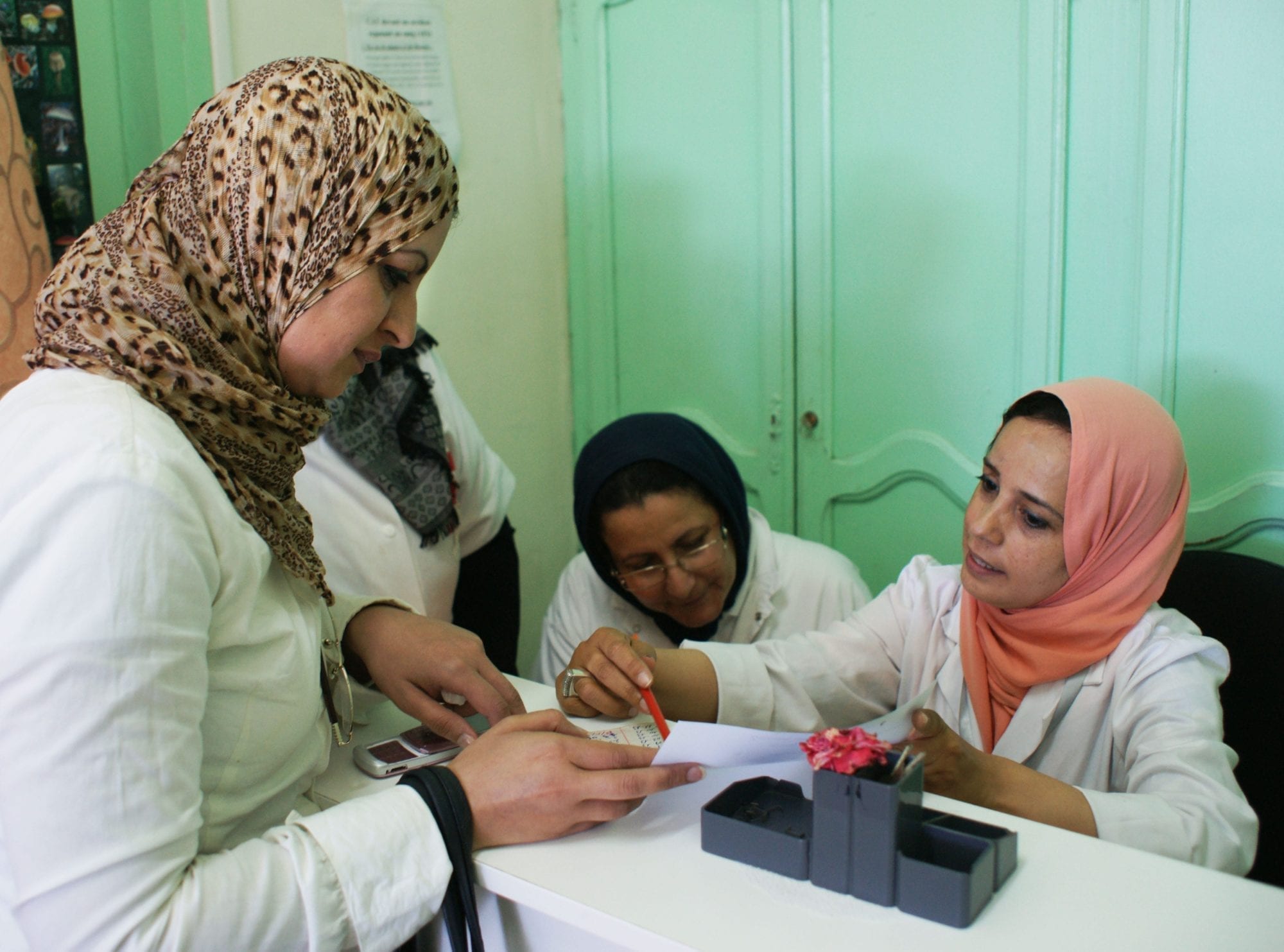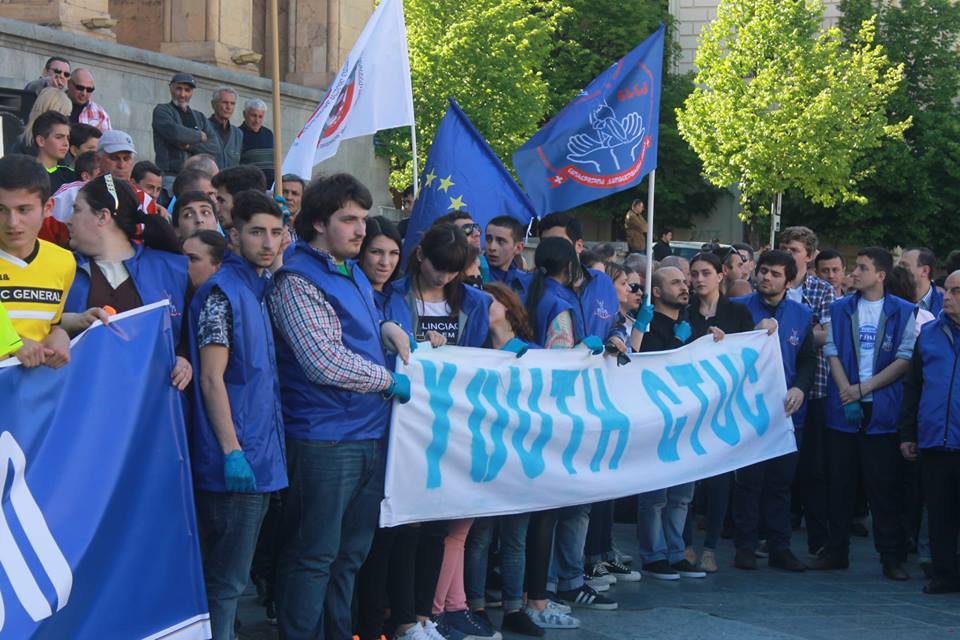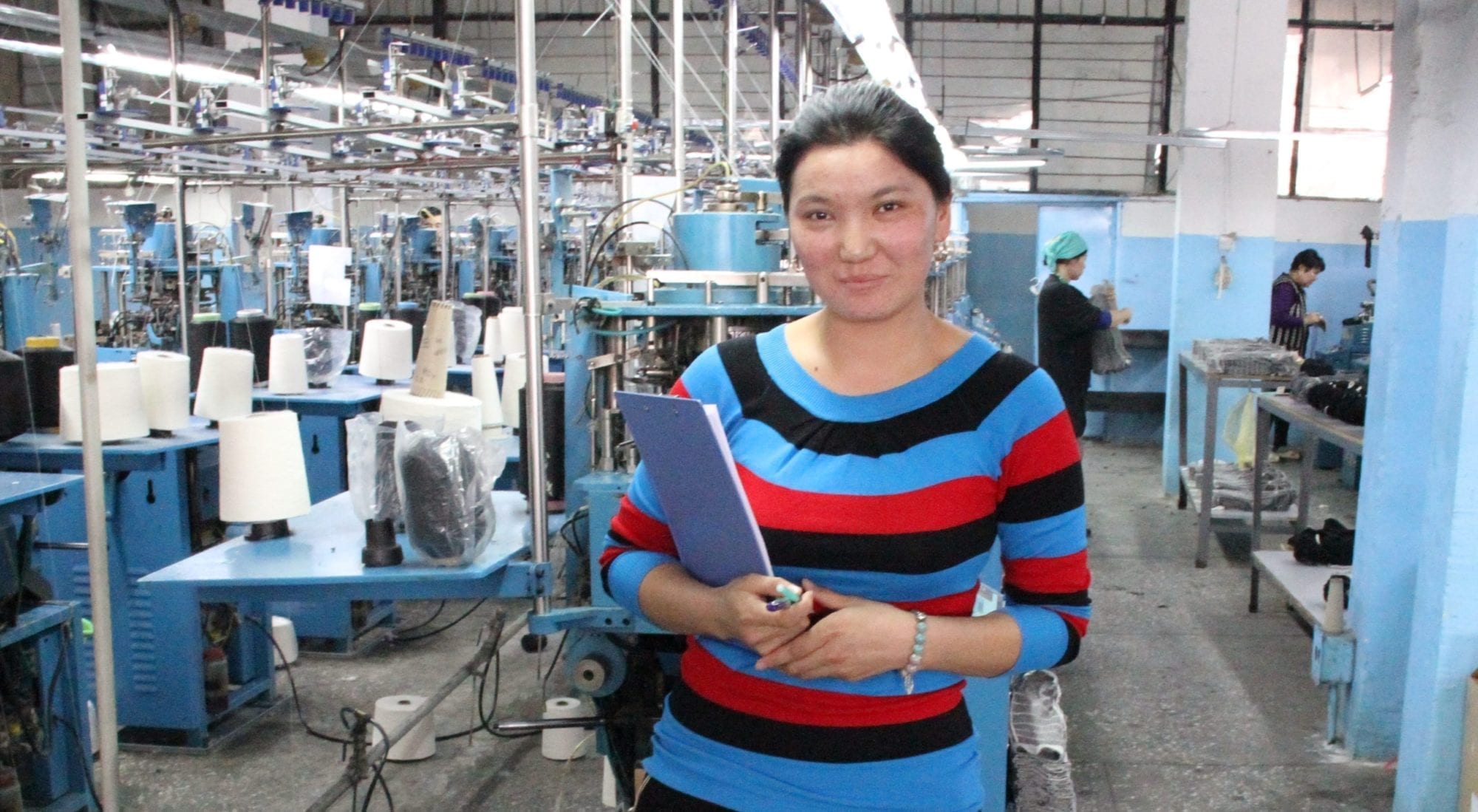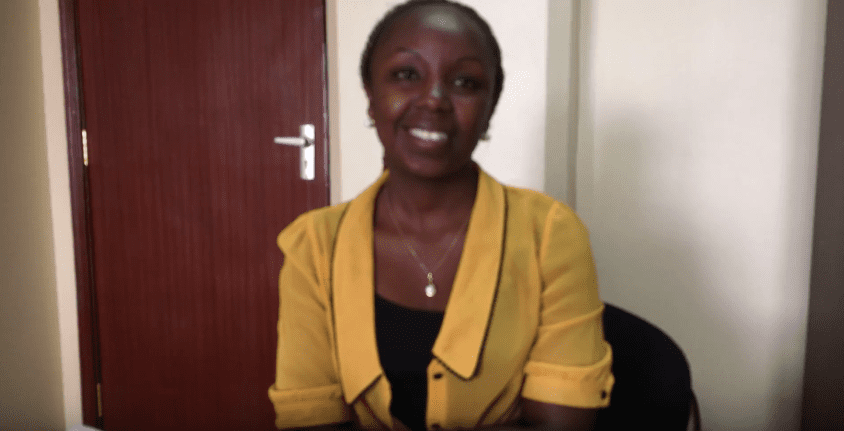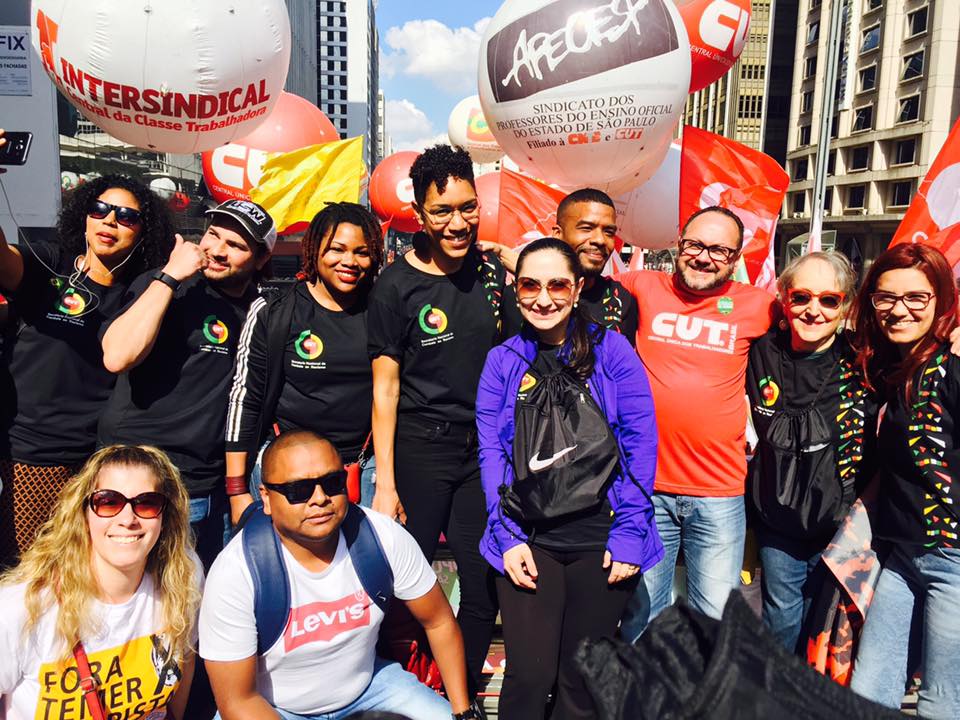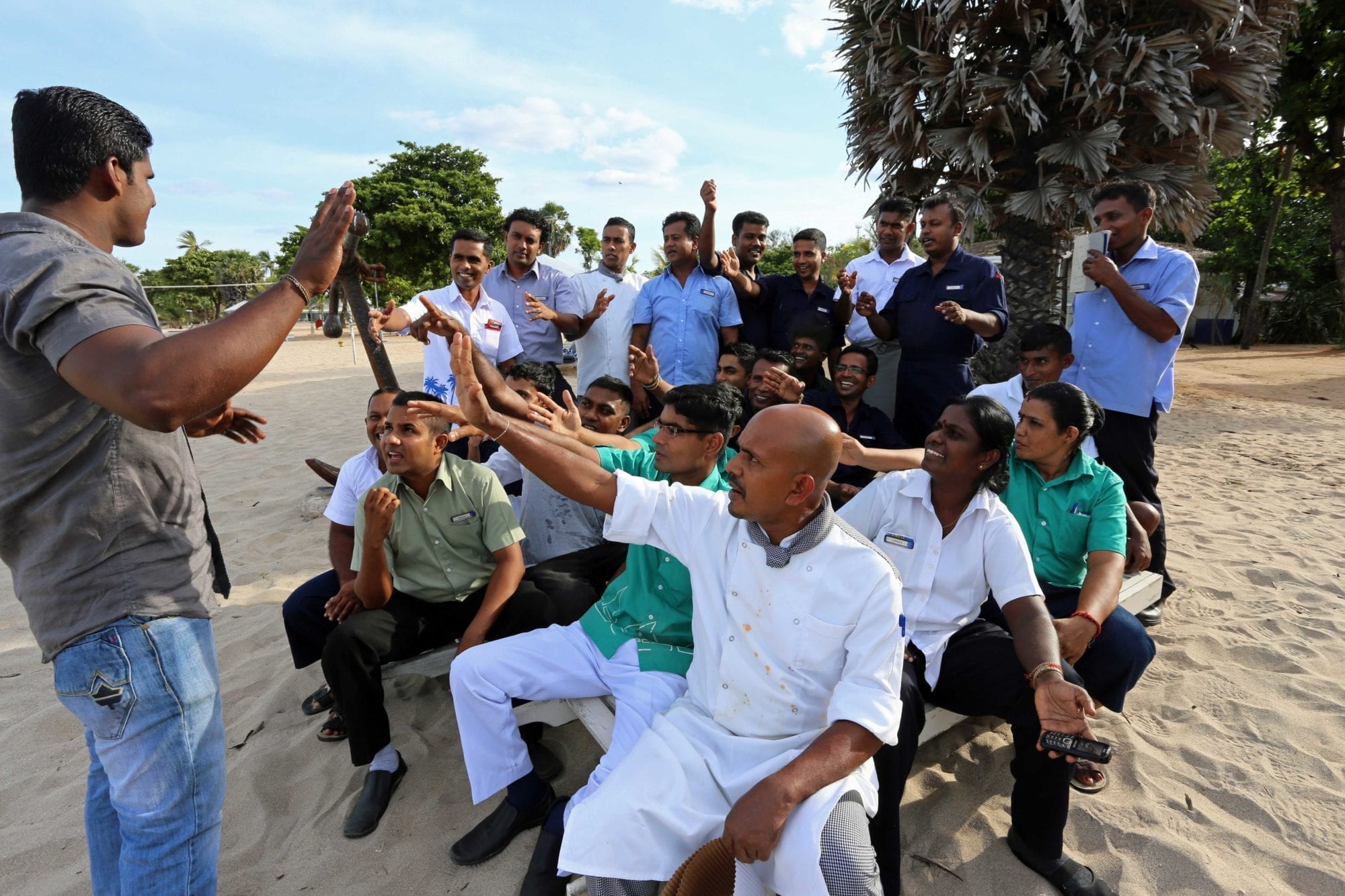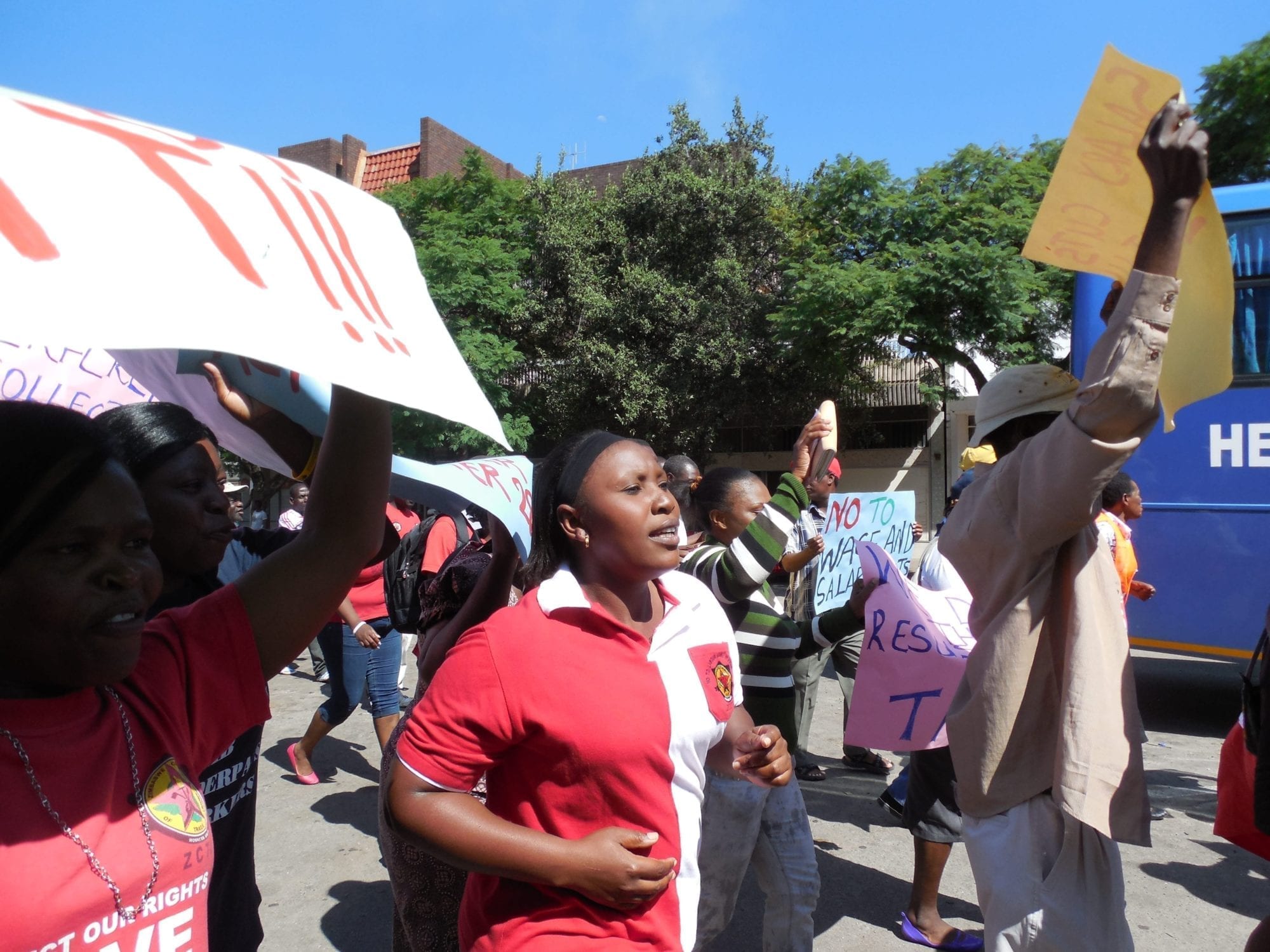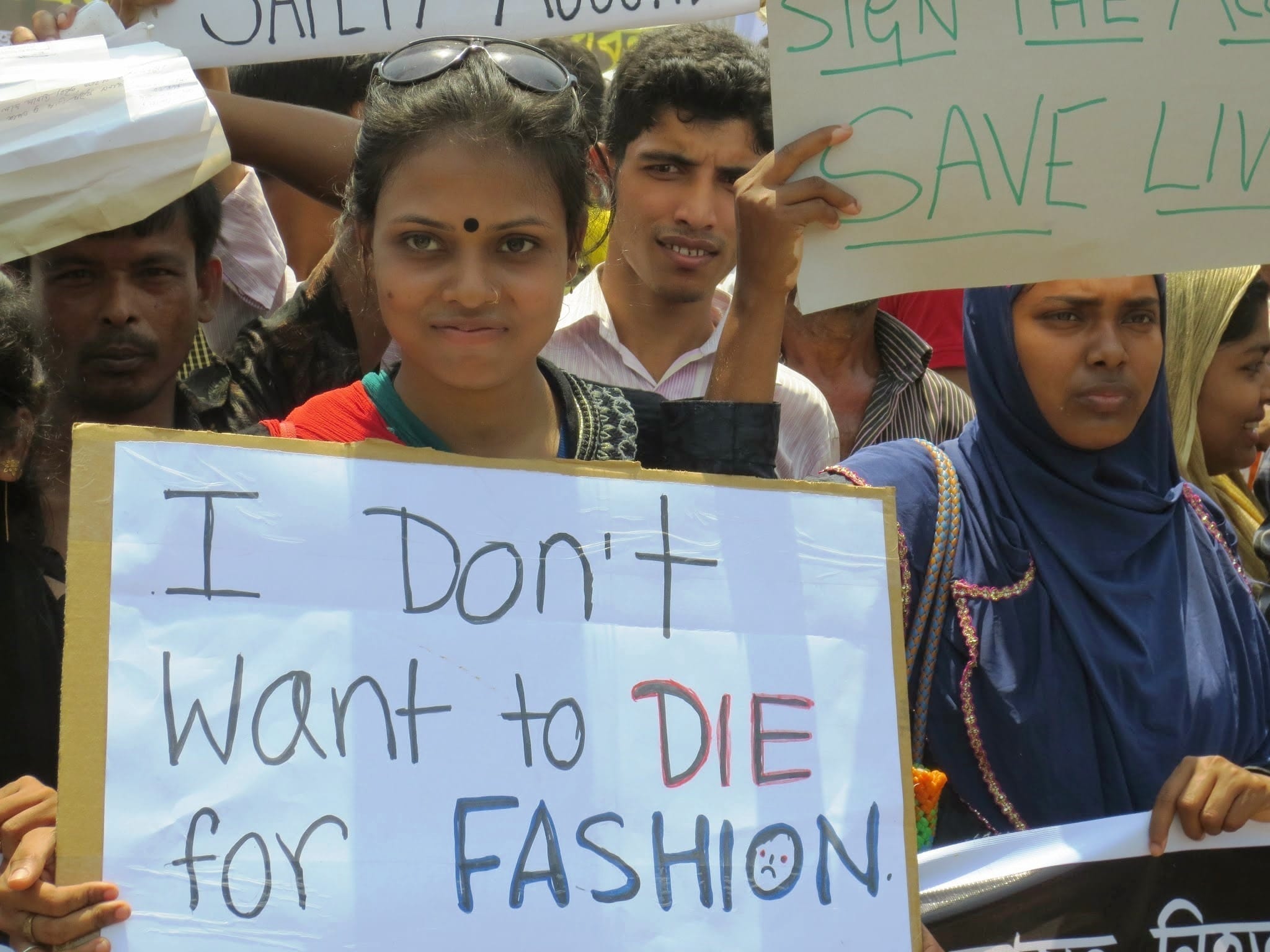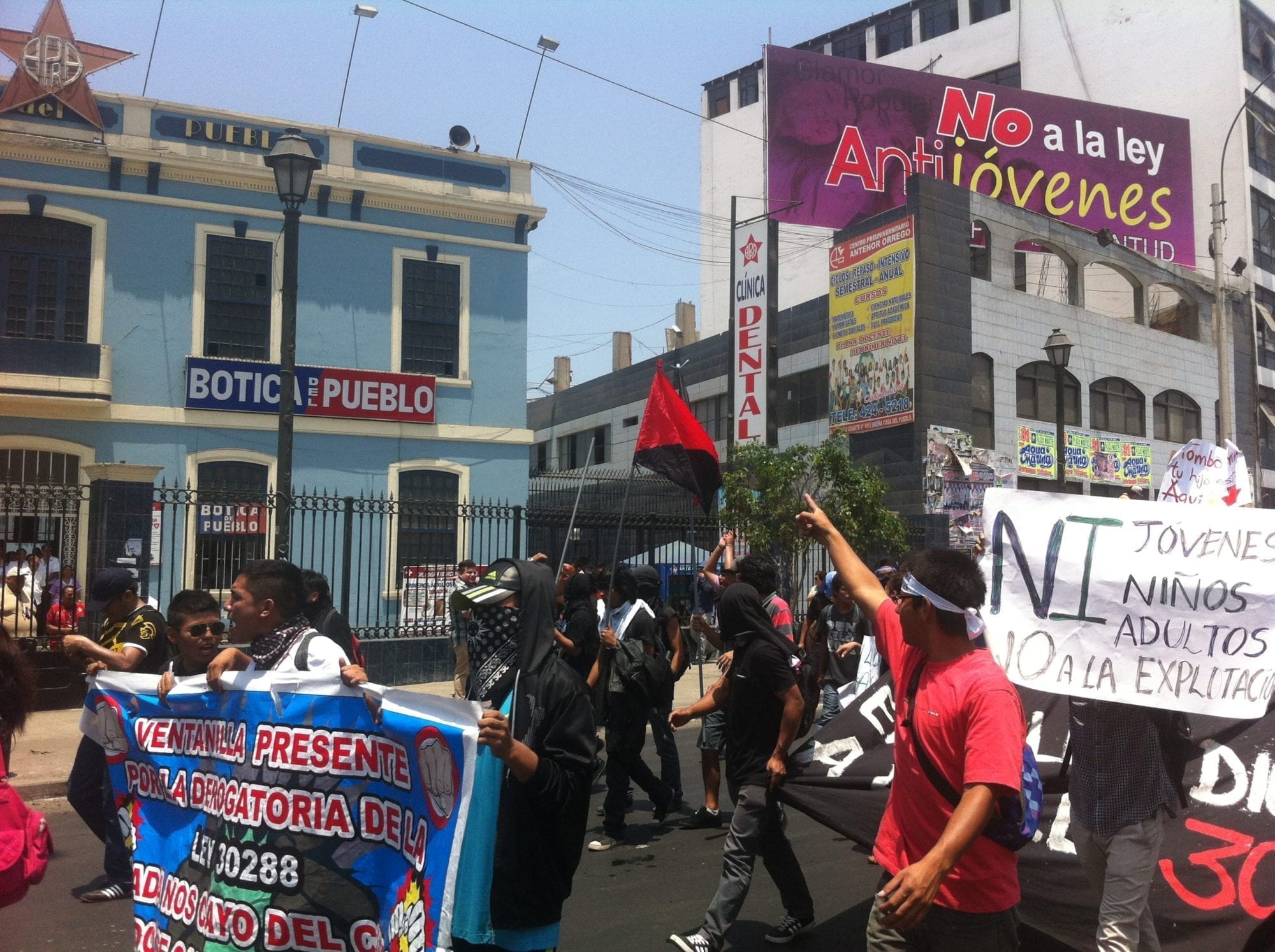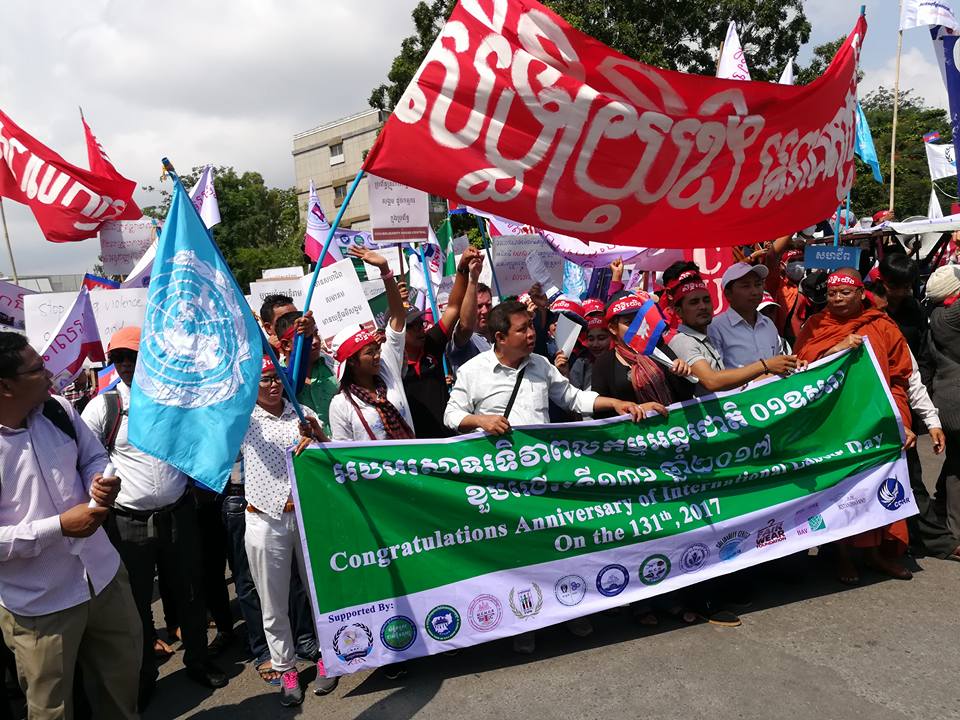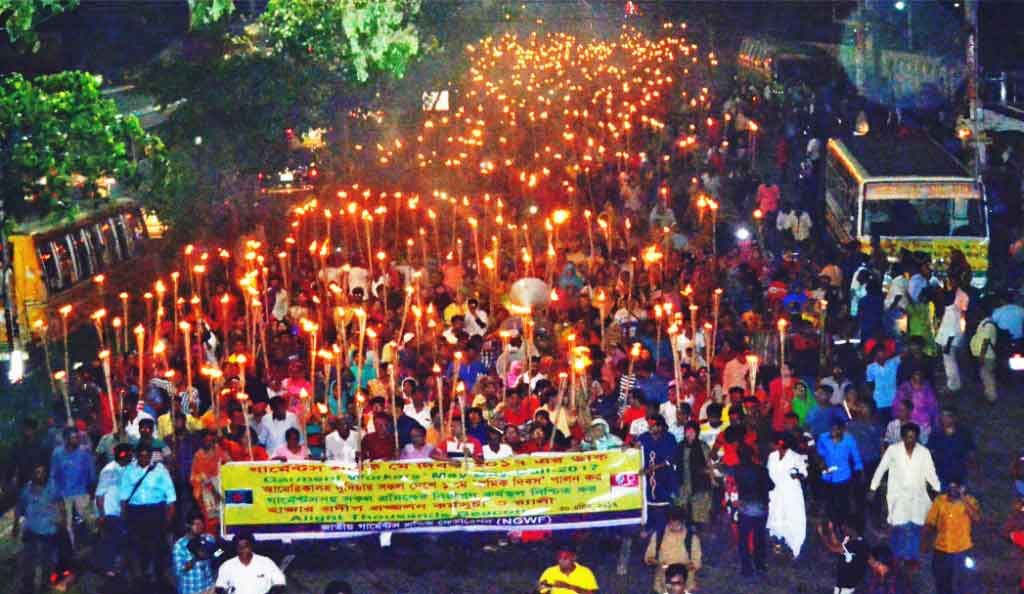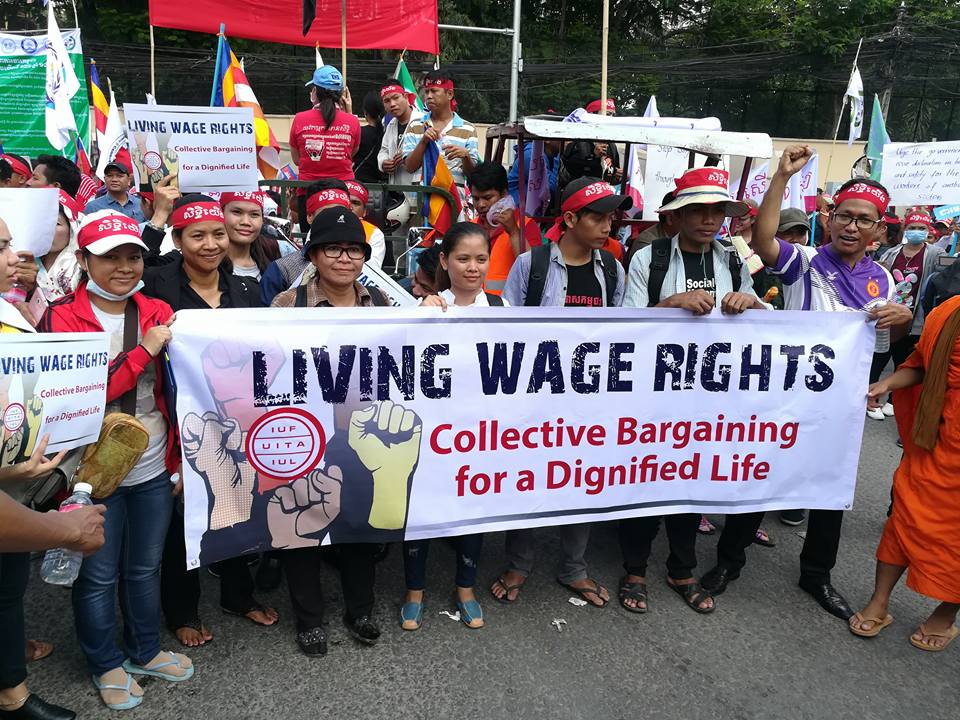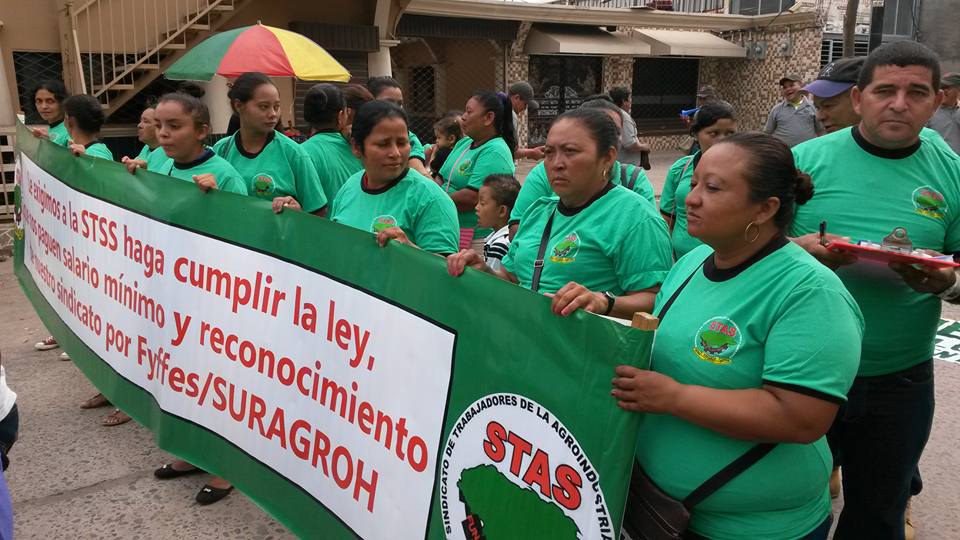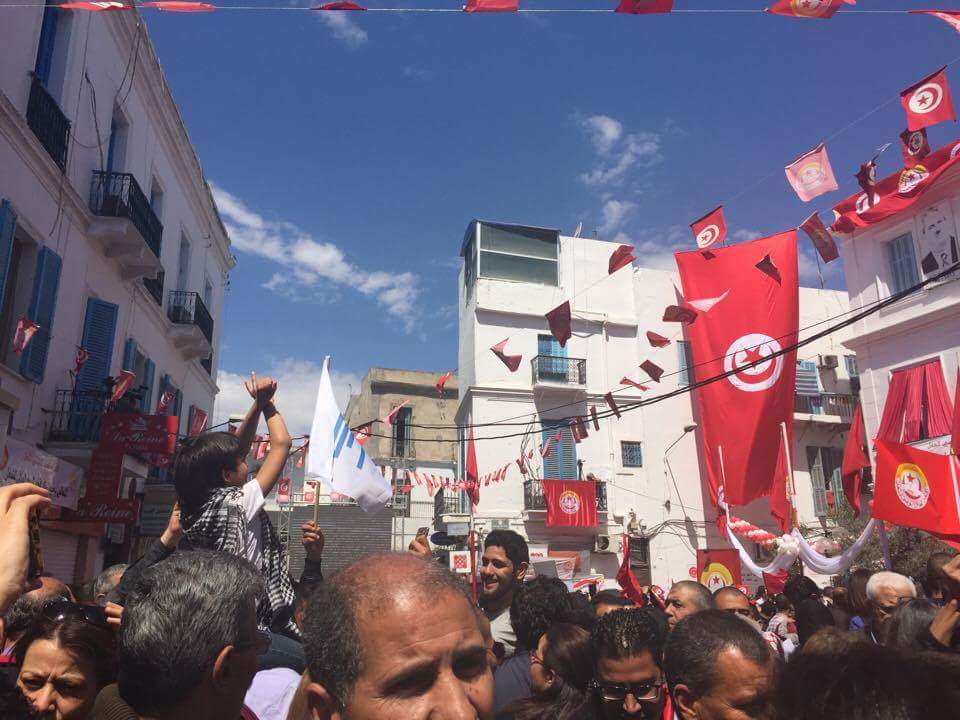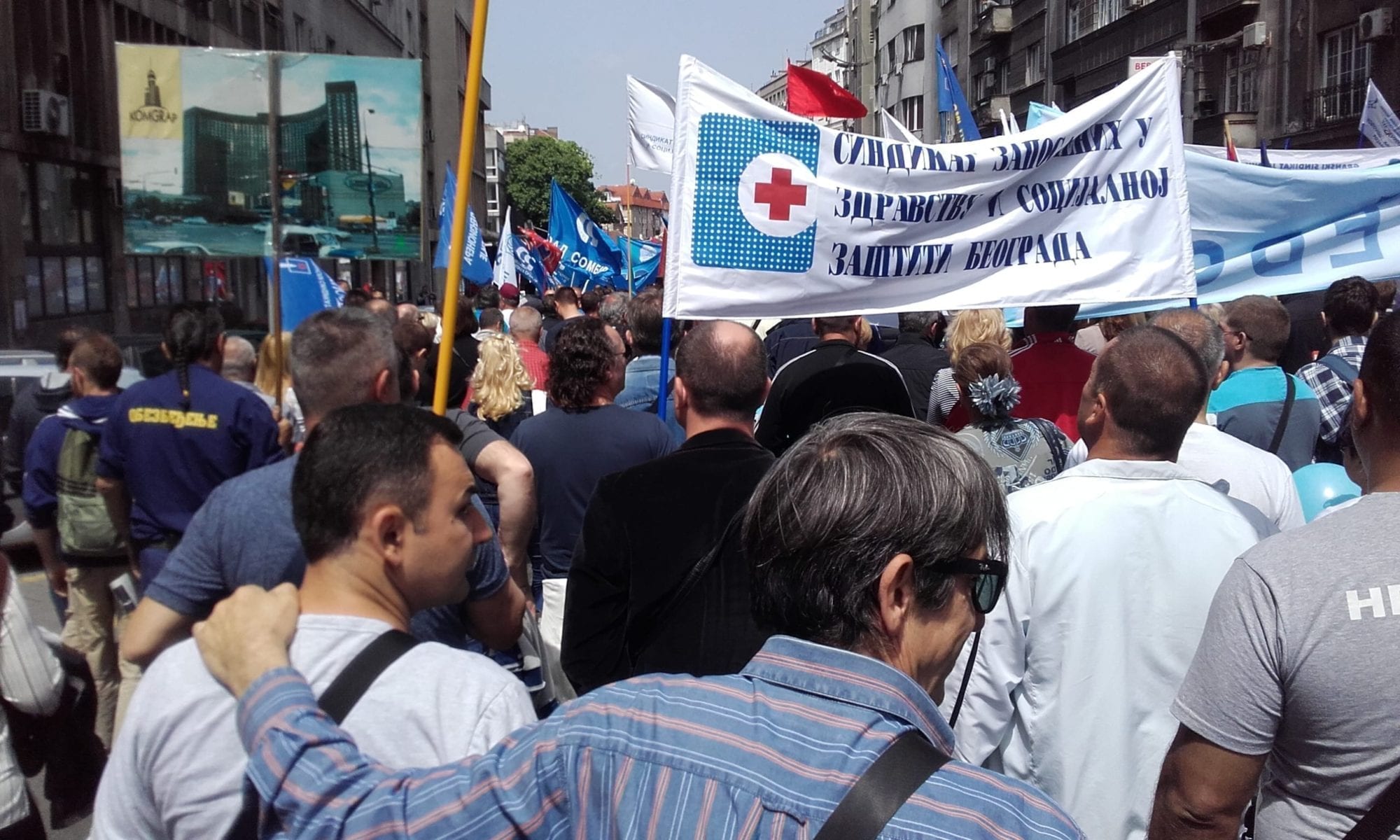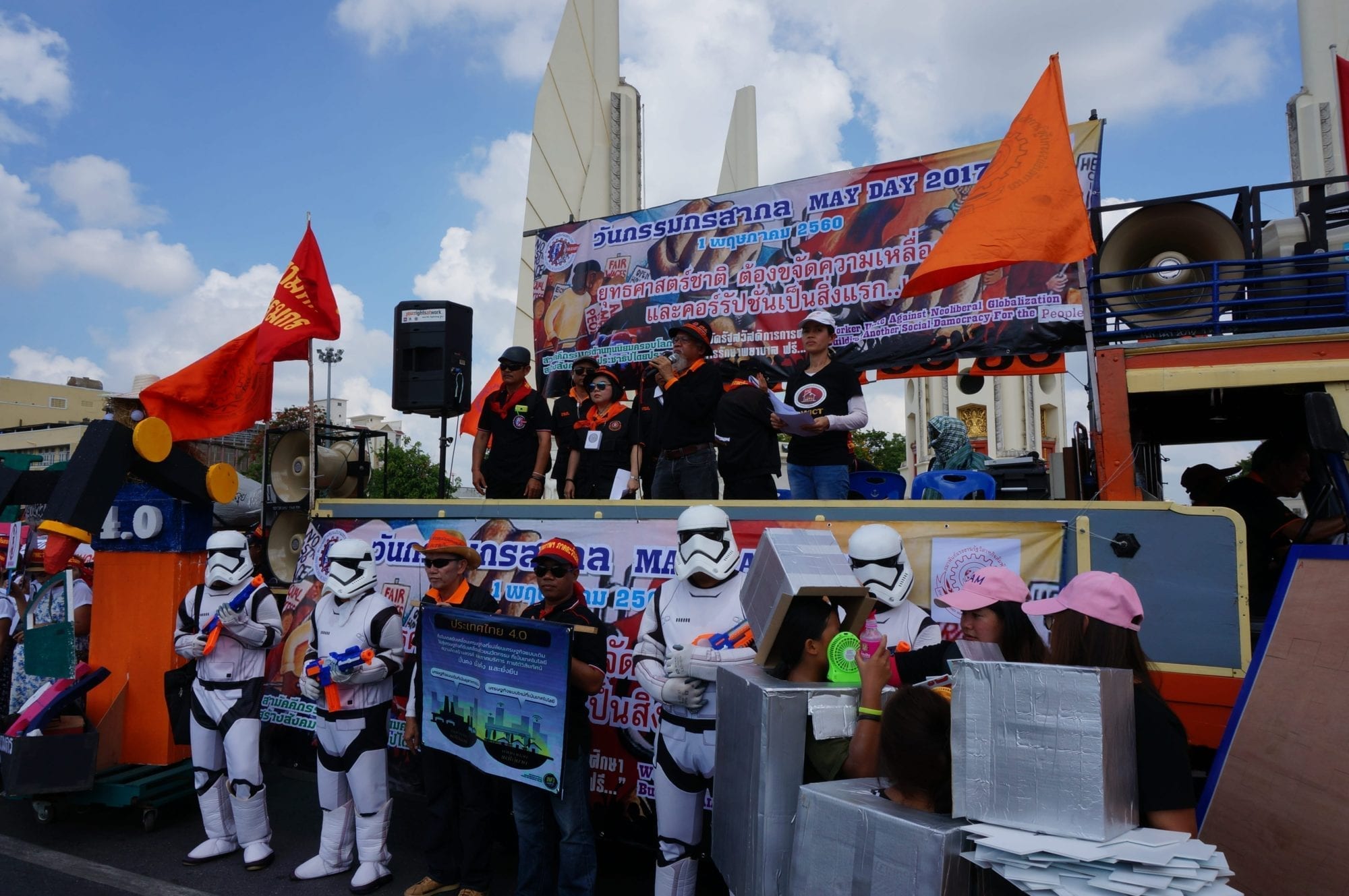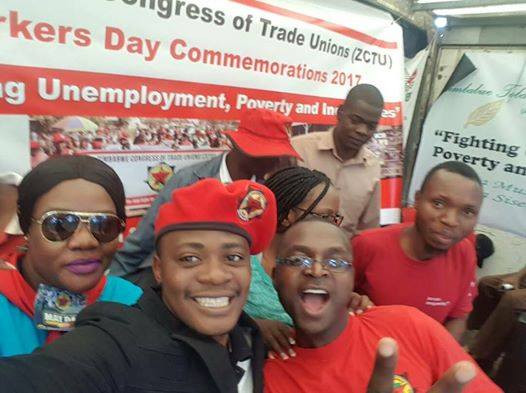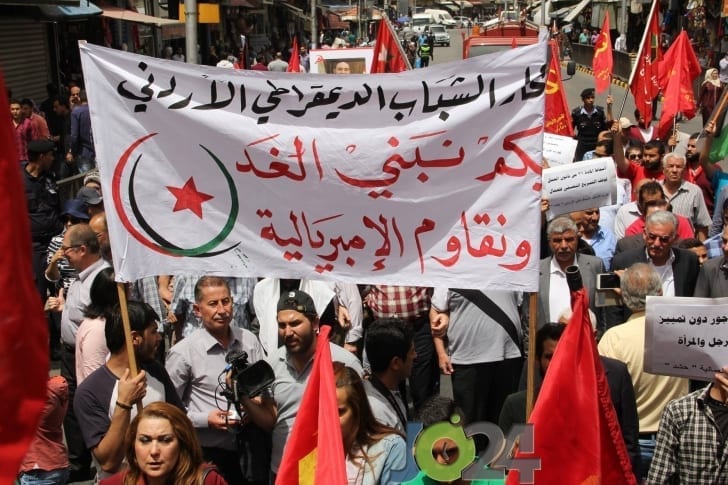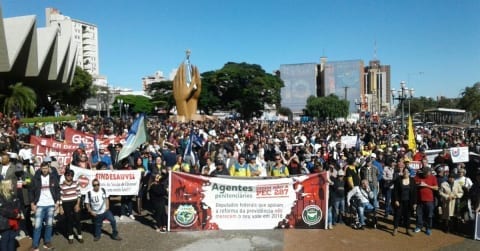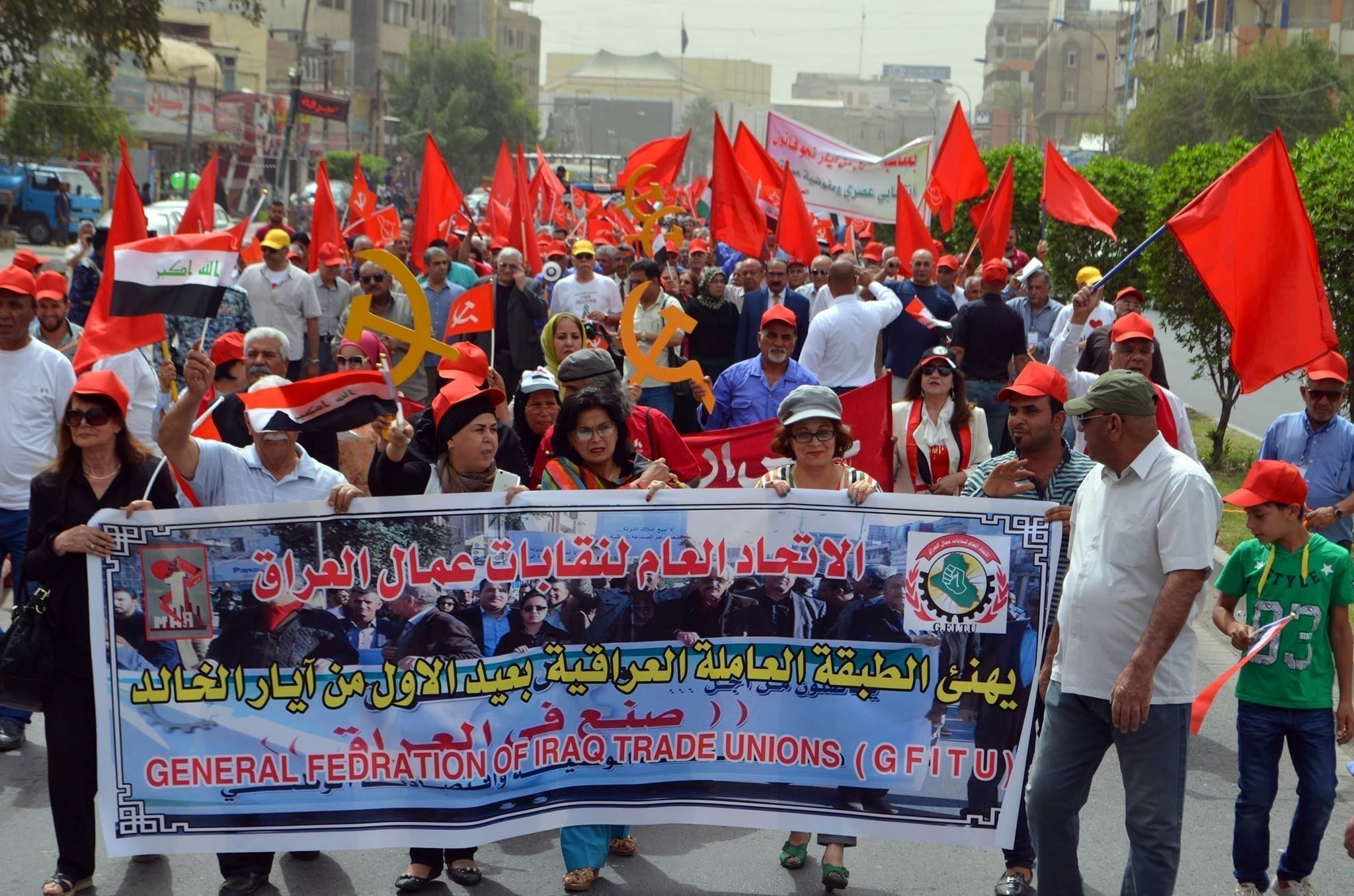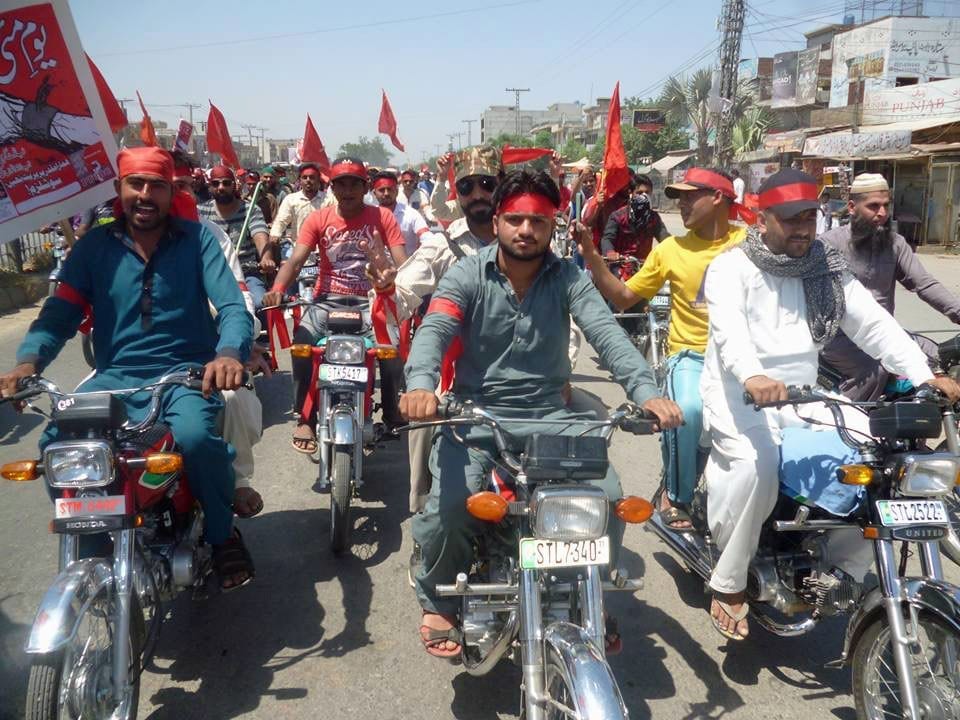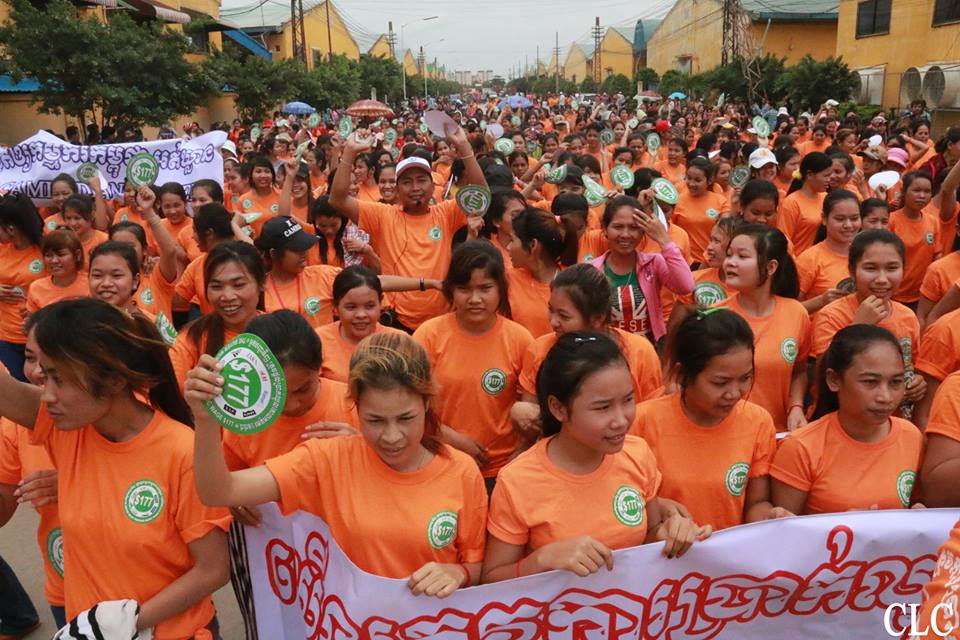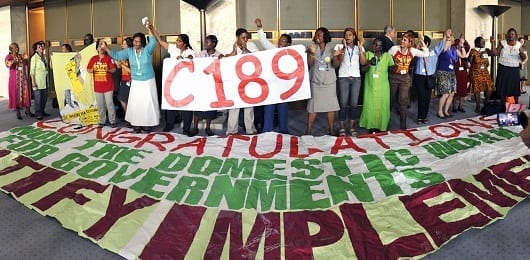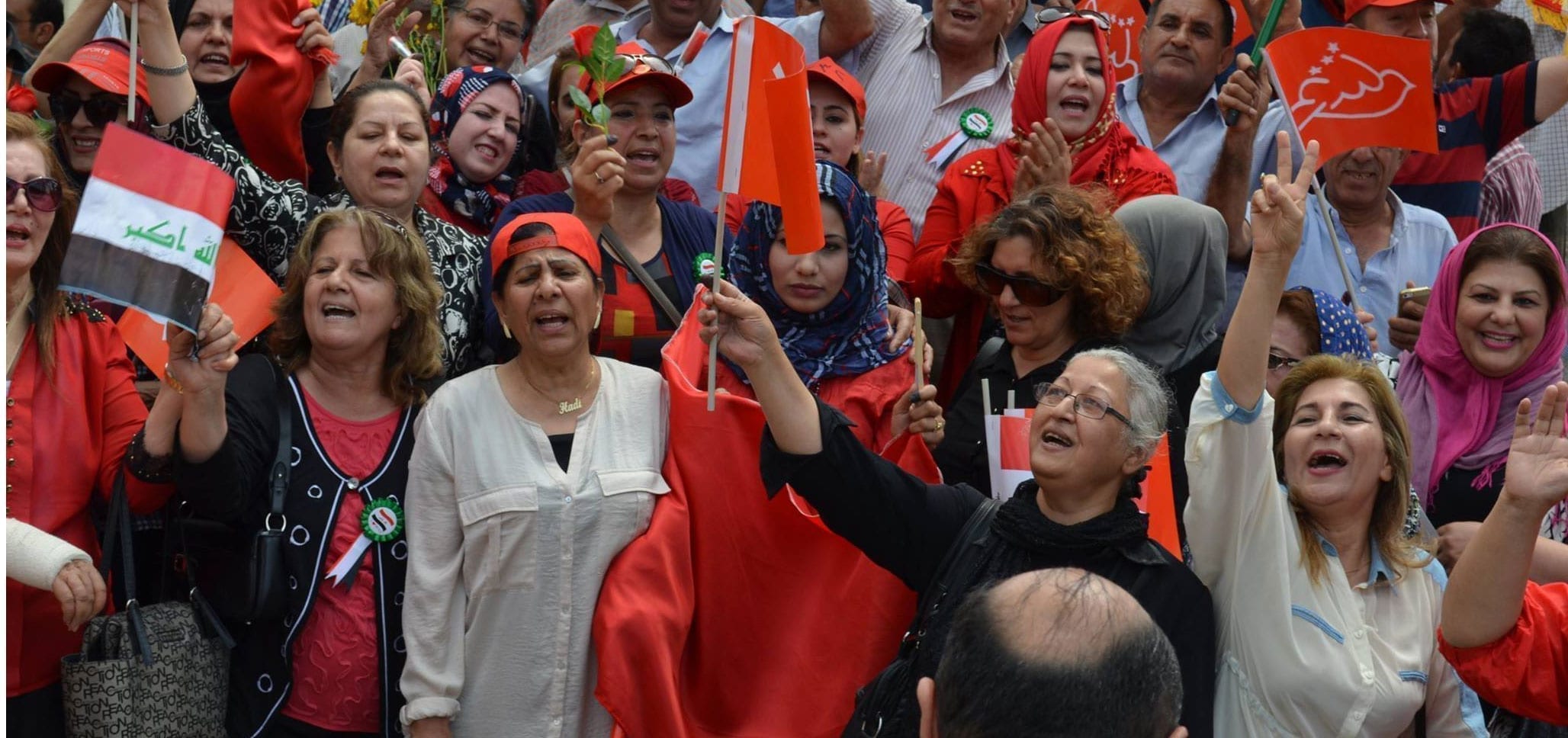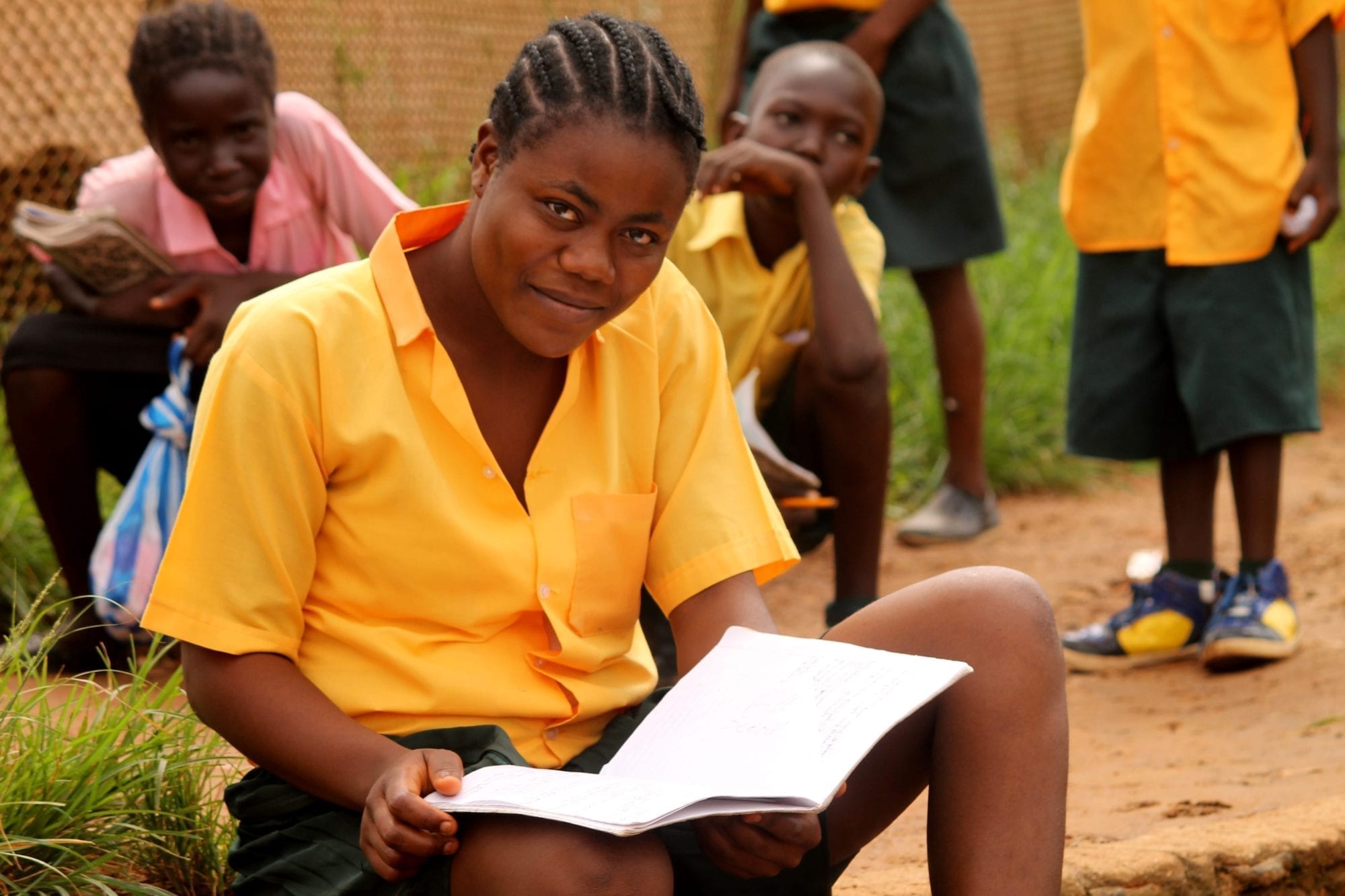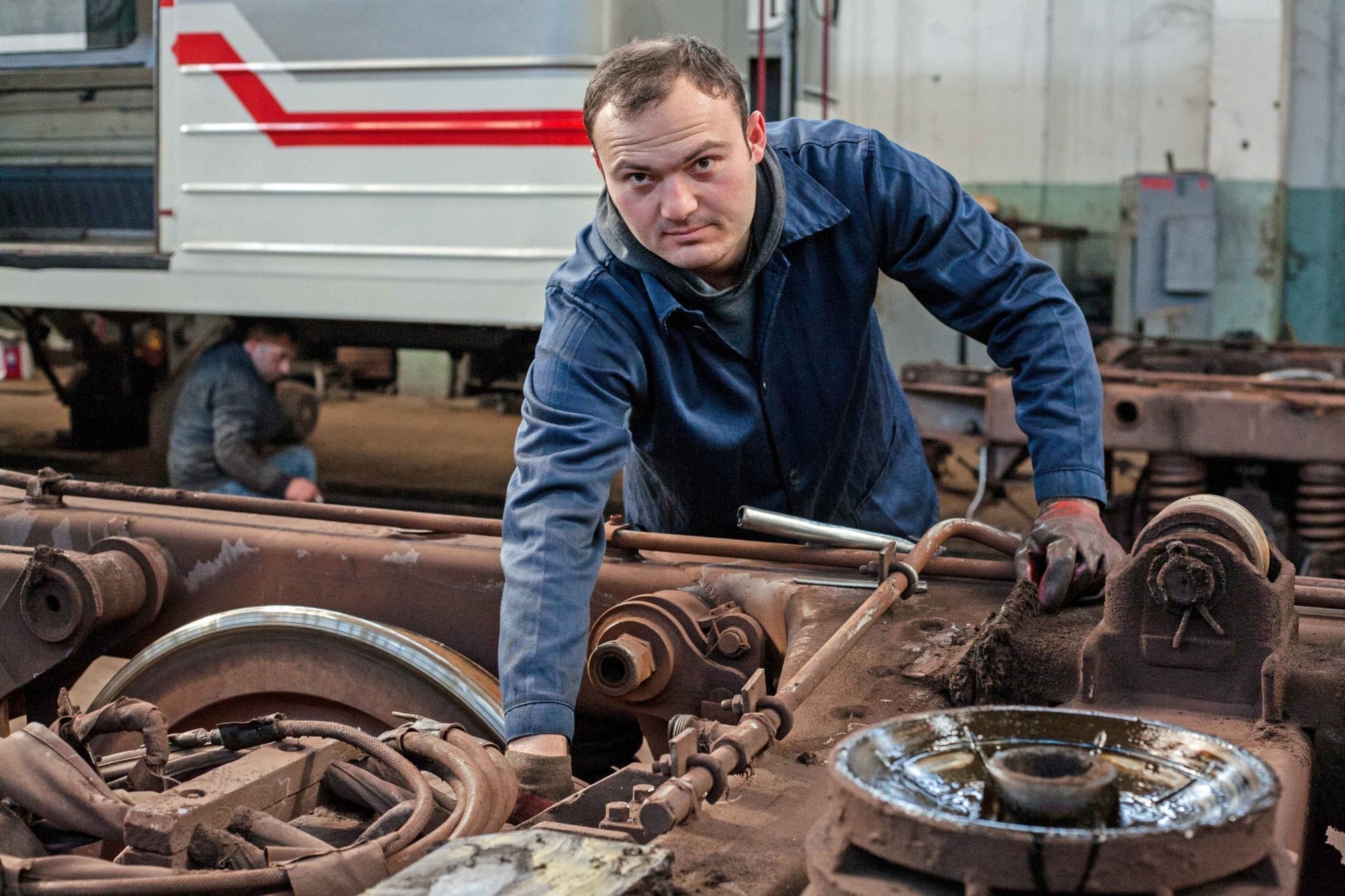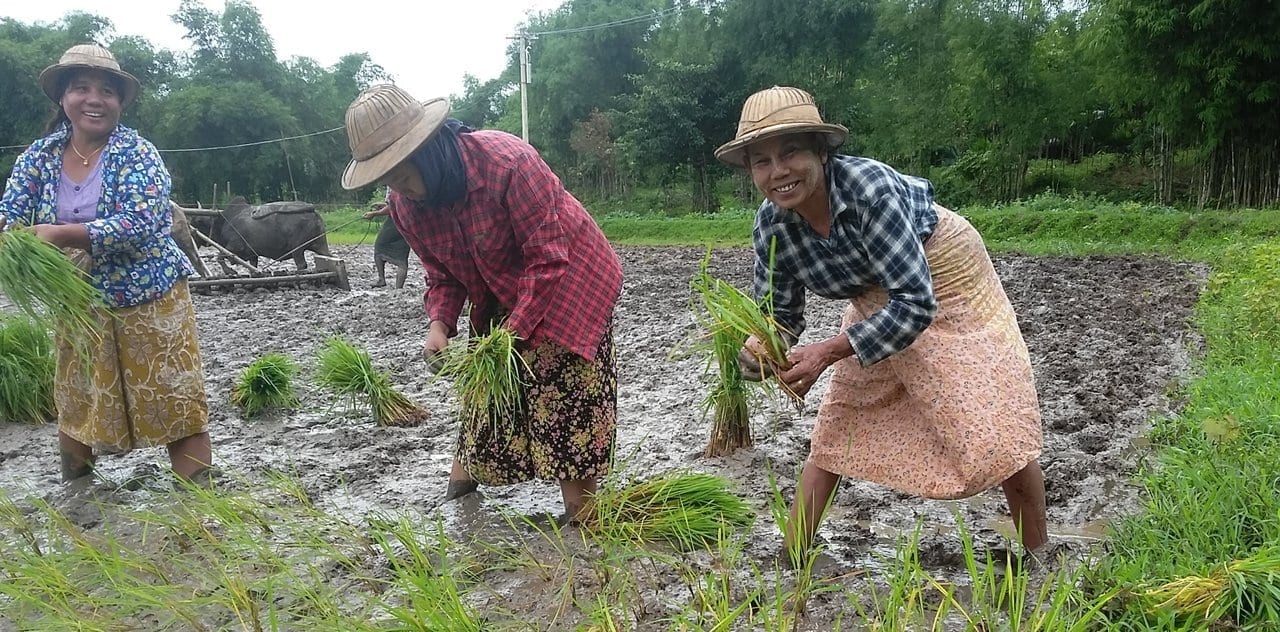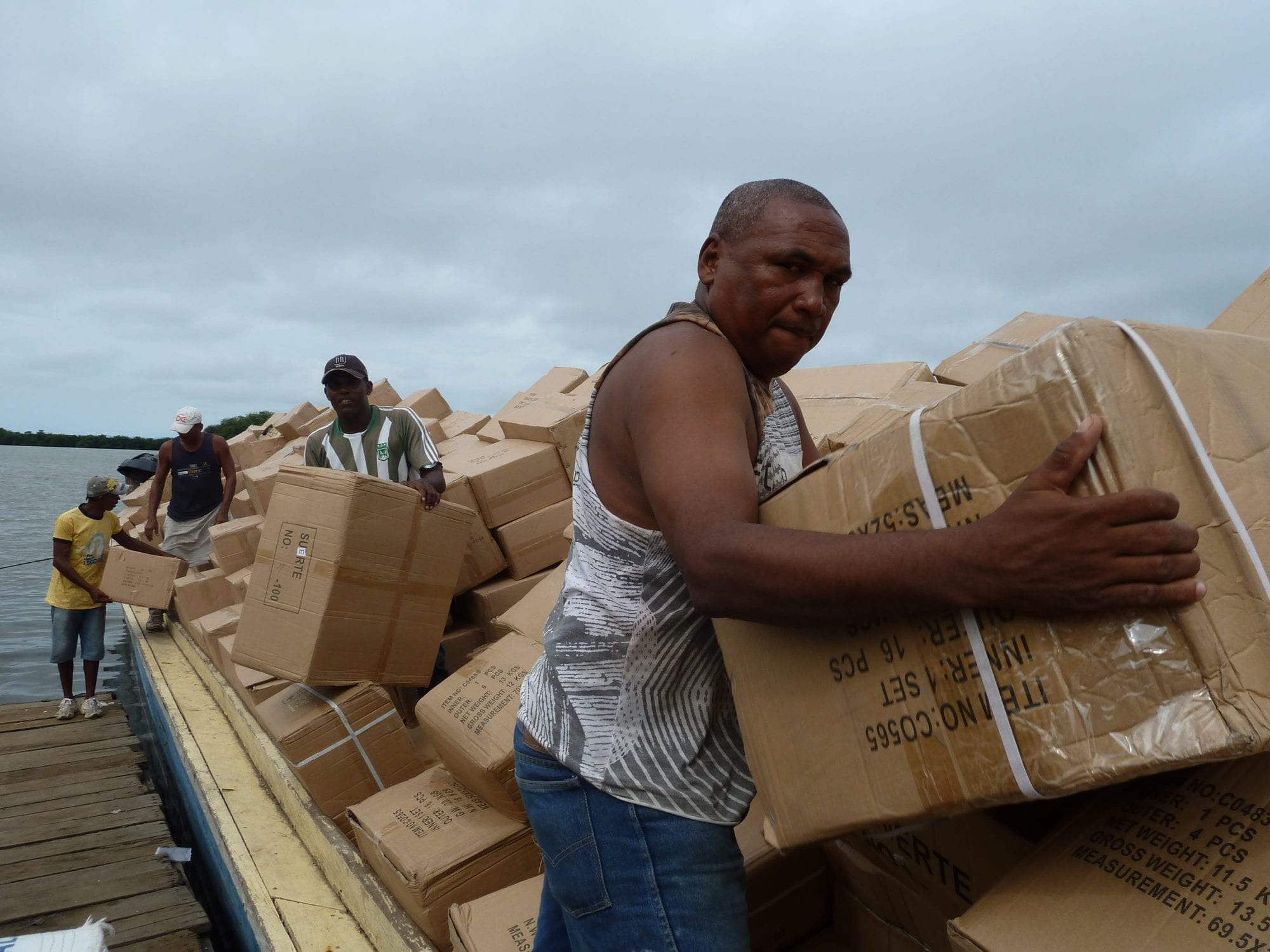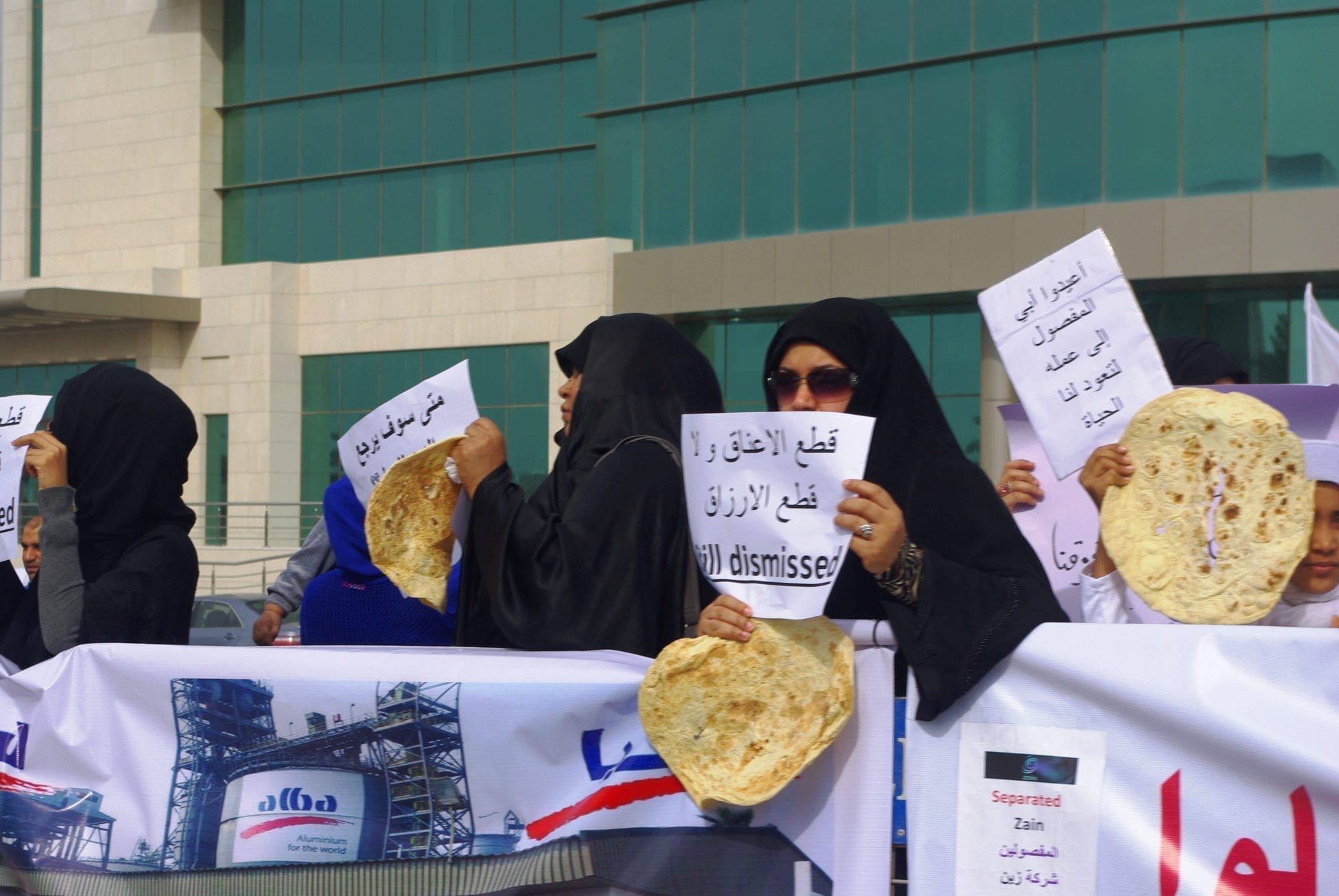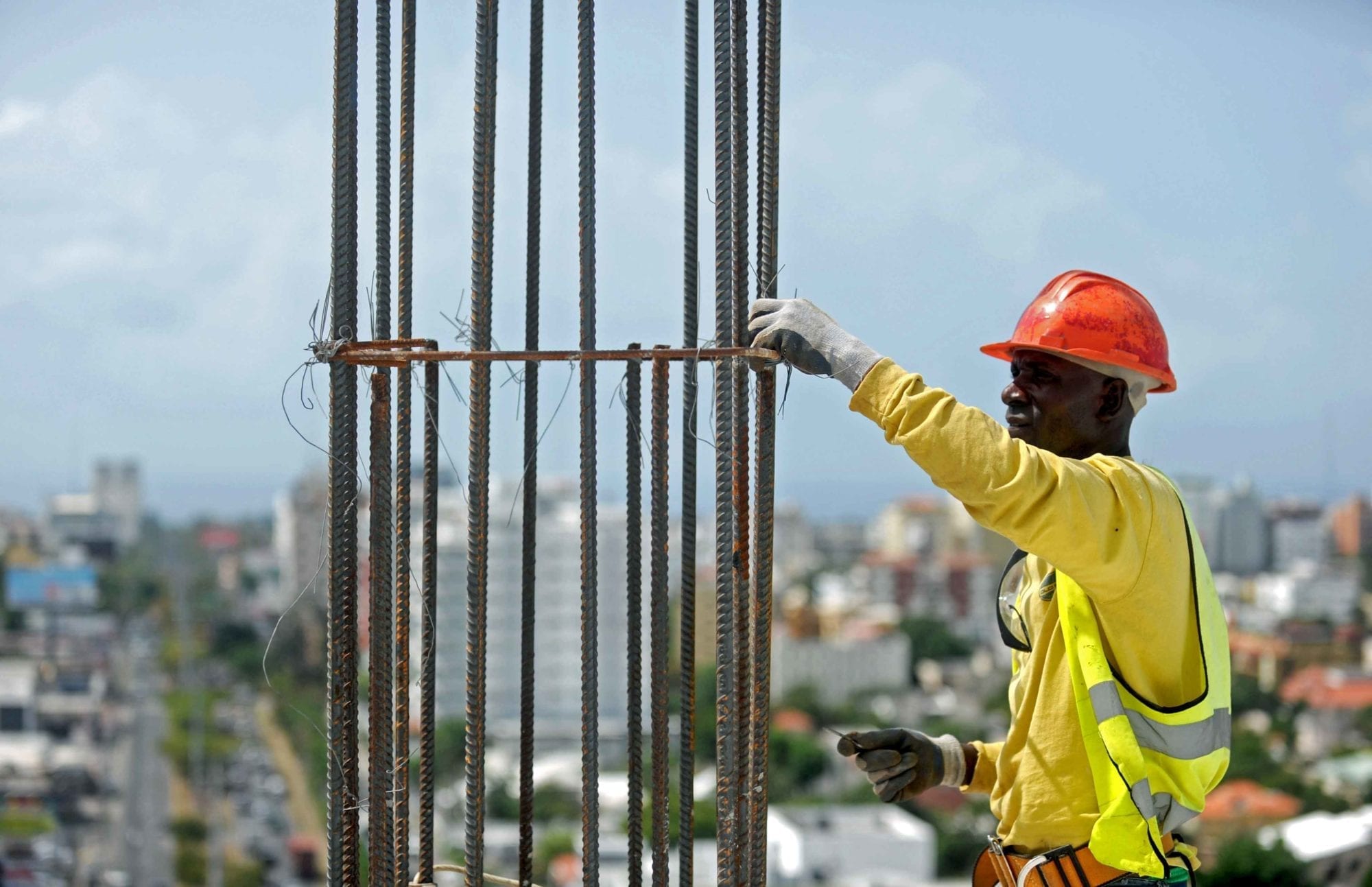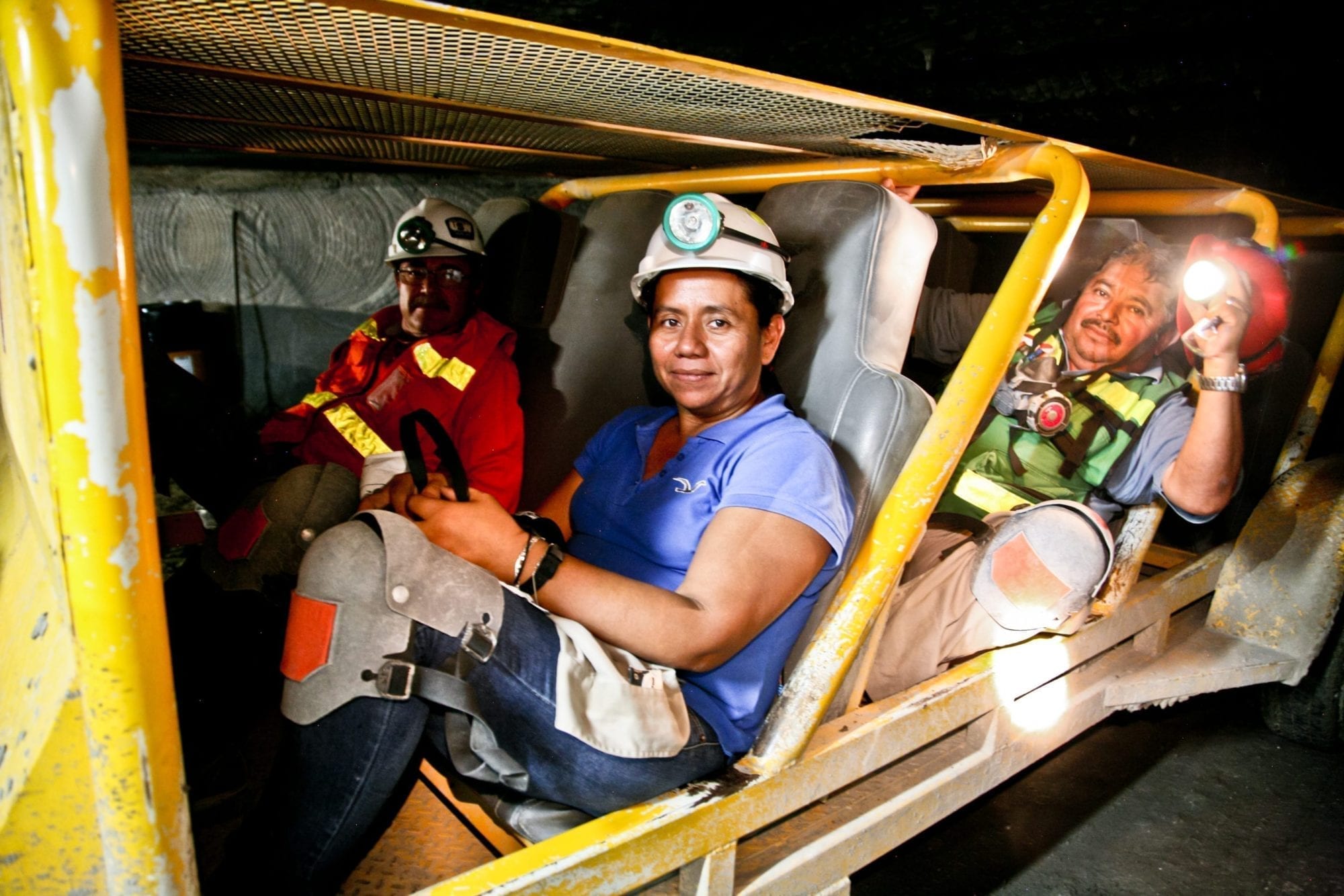
Breaking Ground: Mexico’s Miners Push For Worker Rights
Mine workers in Mexico labor in difficult and sometimes deadly working conditions. But through their union, the National Union of Mine, Metal, Steel and Similar Workers of the Mexican Republic (SNTMMSSRM, known as “Los Mineros”), they are winning collective bargaining pacts that include significant economic benefits, essential safety and health protections, and other fundamental rights on the job.
The union is breaking ground by raising the visibility of the work and activism of women members through the Mineras de Acero (Women Miners of Steel) leadership and gender equality training, a program jointly developed by the Solidarity Center, United Steelworkers (USW), Comité Fronterizo de Obrer@s (Border Committee of Workers, CFO) and Los Mineros.
During the most recent collective bargaining training, union members looked at family-friendly contract language and strategies for promoting gender equality and ensuring that women’s key issues get on the list of bargaining priorities—and stay there. Female miners and their sisters in allied industries are building a network throughout the national union as a result of this work.
In this photo essay, Los Mineros members working in the Fénix and Monje phosphate mines in La Paz, a large commercial center in the Mexican coastal state of Baja California Sur, demonstrate the daily courage and quiet dignity of miners at work.
Photos by Roberto Armocida for the Solidarity Center, unless otherwise specified.
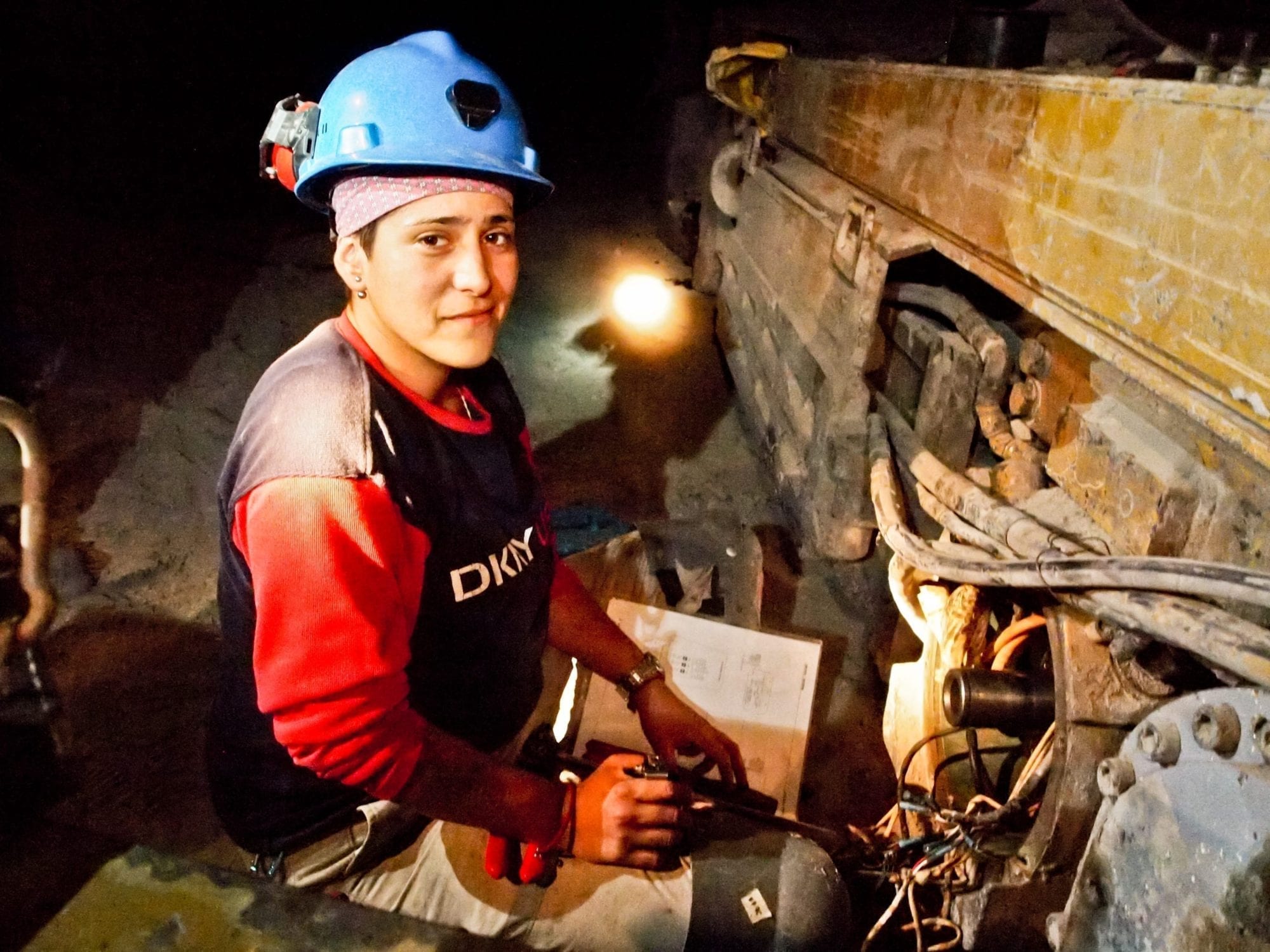
Miner Ileana Vasquez, repairing machinery nearly 1,000 feet from the surface, has worked three years as an instrumentalist and electromechanic. Vasquez and other women miners are challenging Mexico’s cultural and social taboos regarding women working in mines.
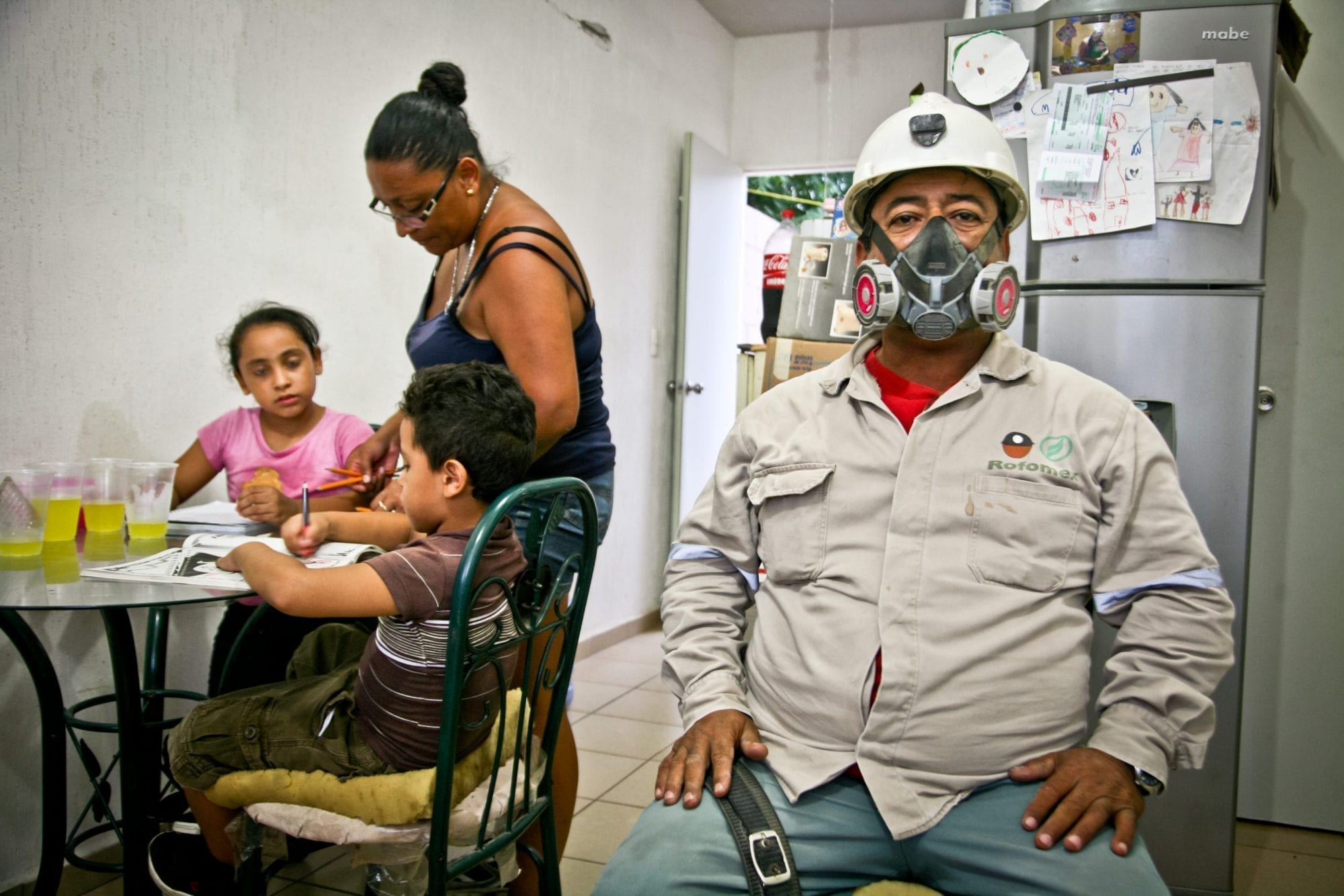
Juan Pablo Bautista Gómez, with the protective equipment he wears in the mine, gets set to leave for work from his home in La Paz, where he lives with his daughter and grandchildren. Gómez has worked in the mines since 1978 and is in charge of maintaining equipment and external logistics.
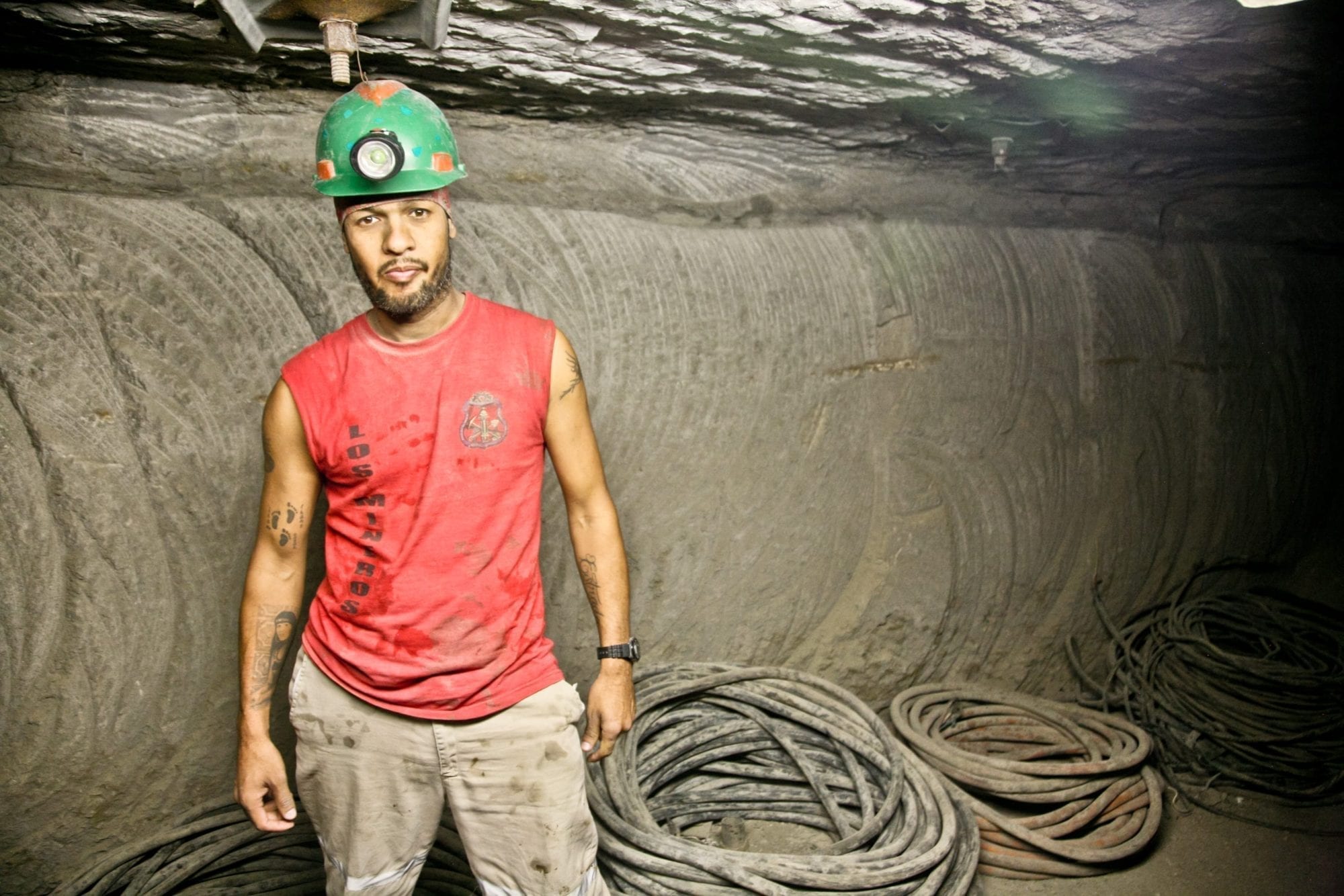
In the Fenix Mine shaft, César Estrada Cueva from Guadalajara, Jalisco, is among 30 miners who work on each of three excavation shifts that keep production going 24 hours a day, 365 days a year.
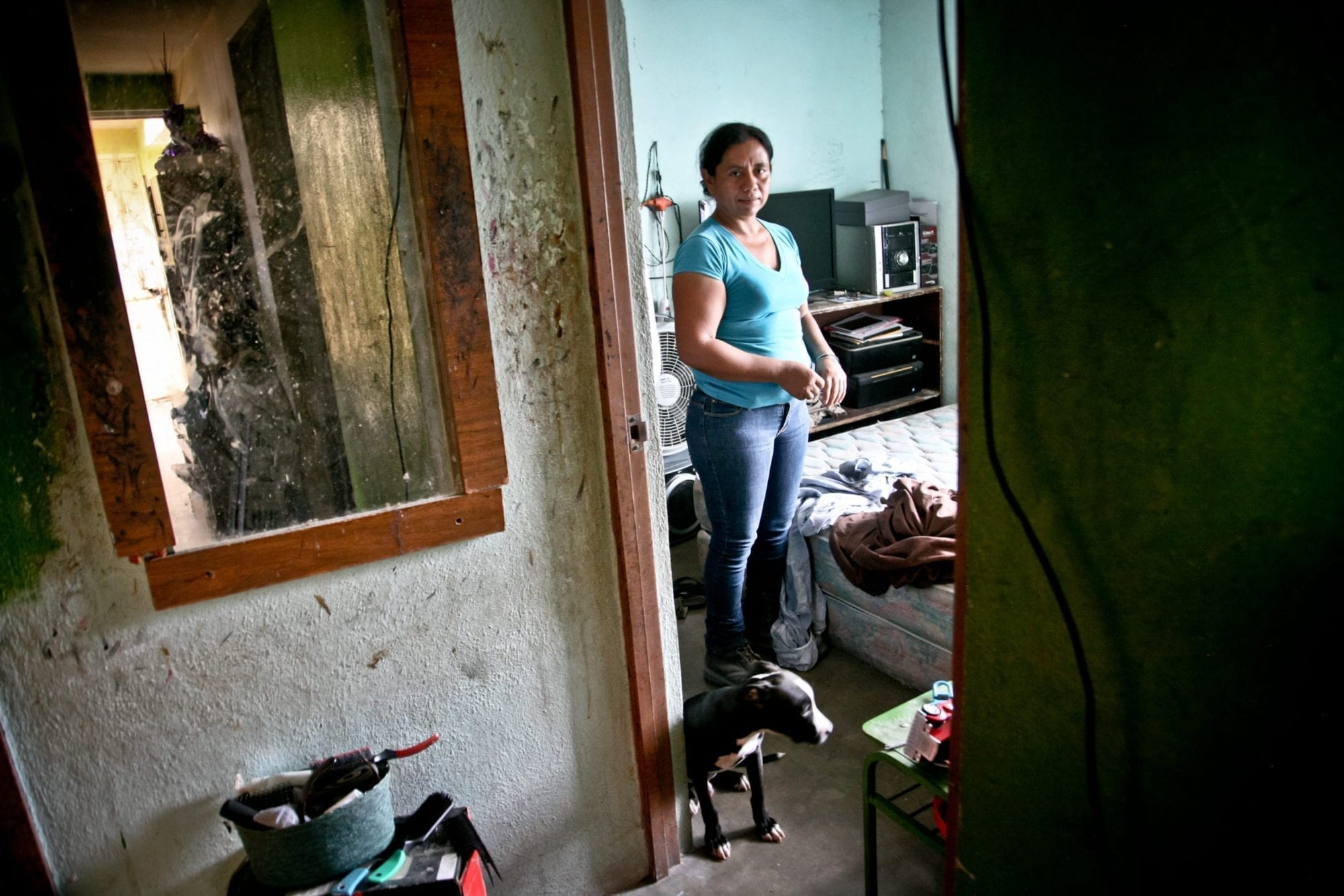
Mine worker Ruth Rivera, 45, a single mother of three, gets ready for work. Rivera, a union steward, has worked as a miner for six years and was a founding member of Mineras de Acero.

Ruth Rivera and her co-workers travel through the mines in a cart that transports all personnel.
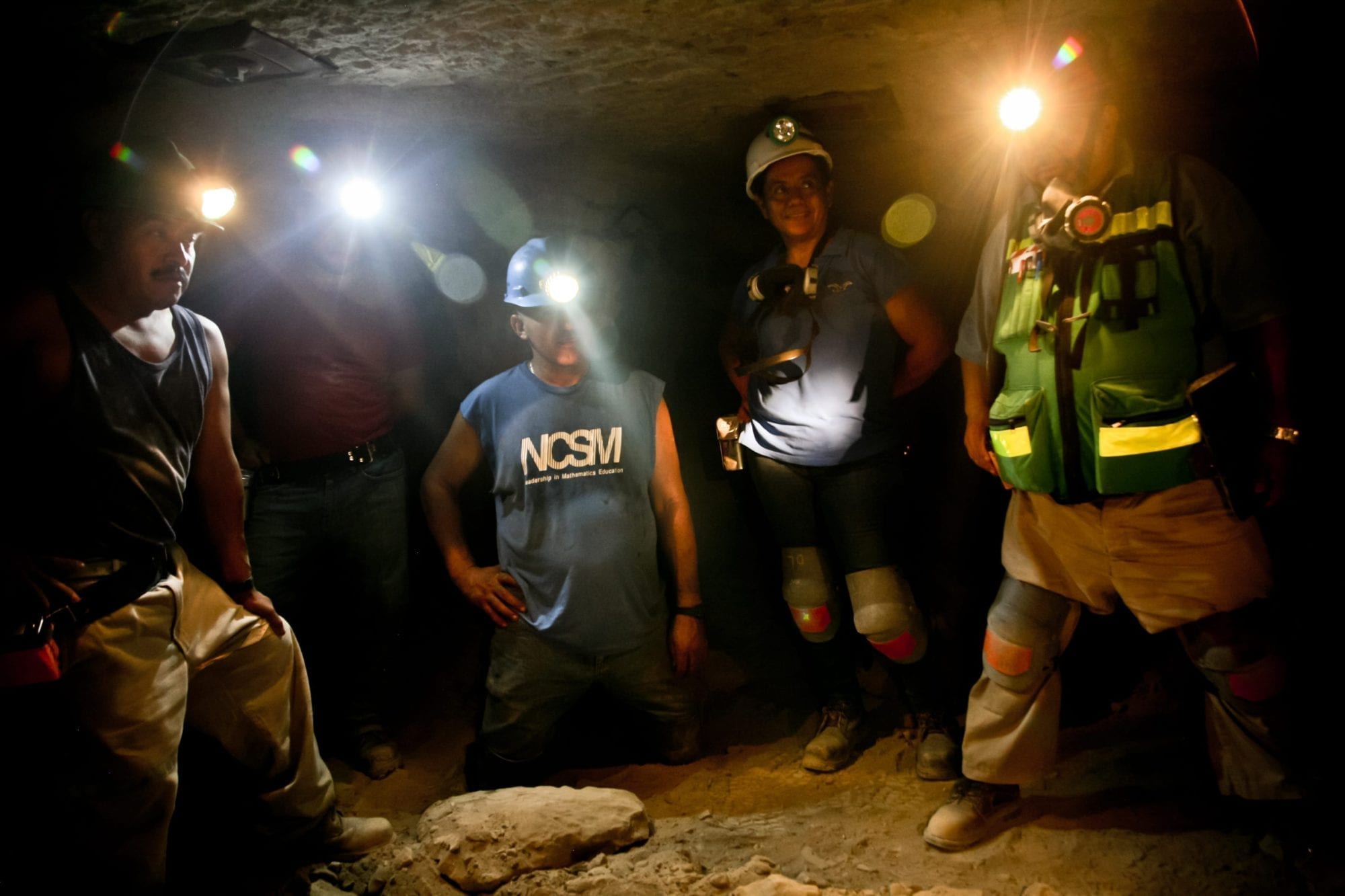
Ruth Rivera (center) and her co-workers inside the Fenix mine, where the tunnel height varies between 59 inches and 62 inches.
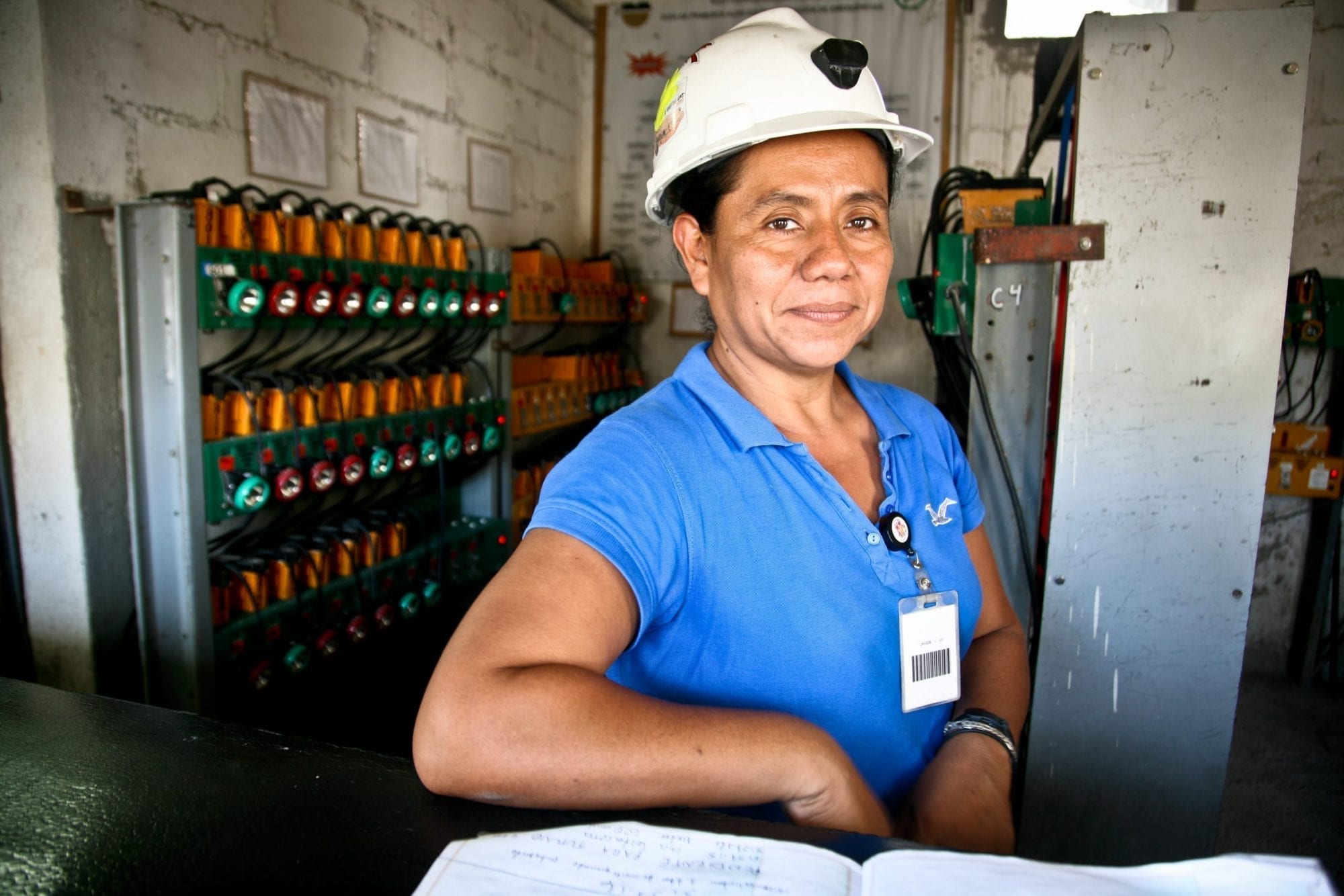
Miner Ruth Rivera also is responsible for the delivery and recovery of personal protective equipment. The equipment allows miners to survive without air for a maximum of 60 minutes.
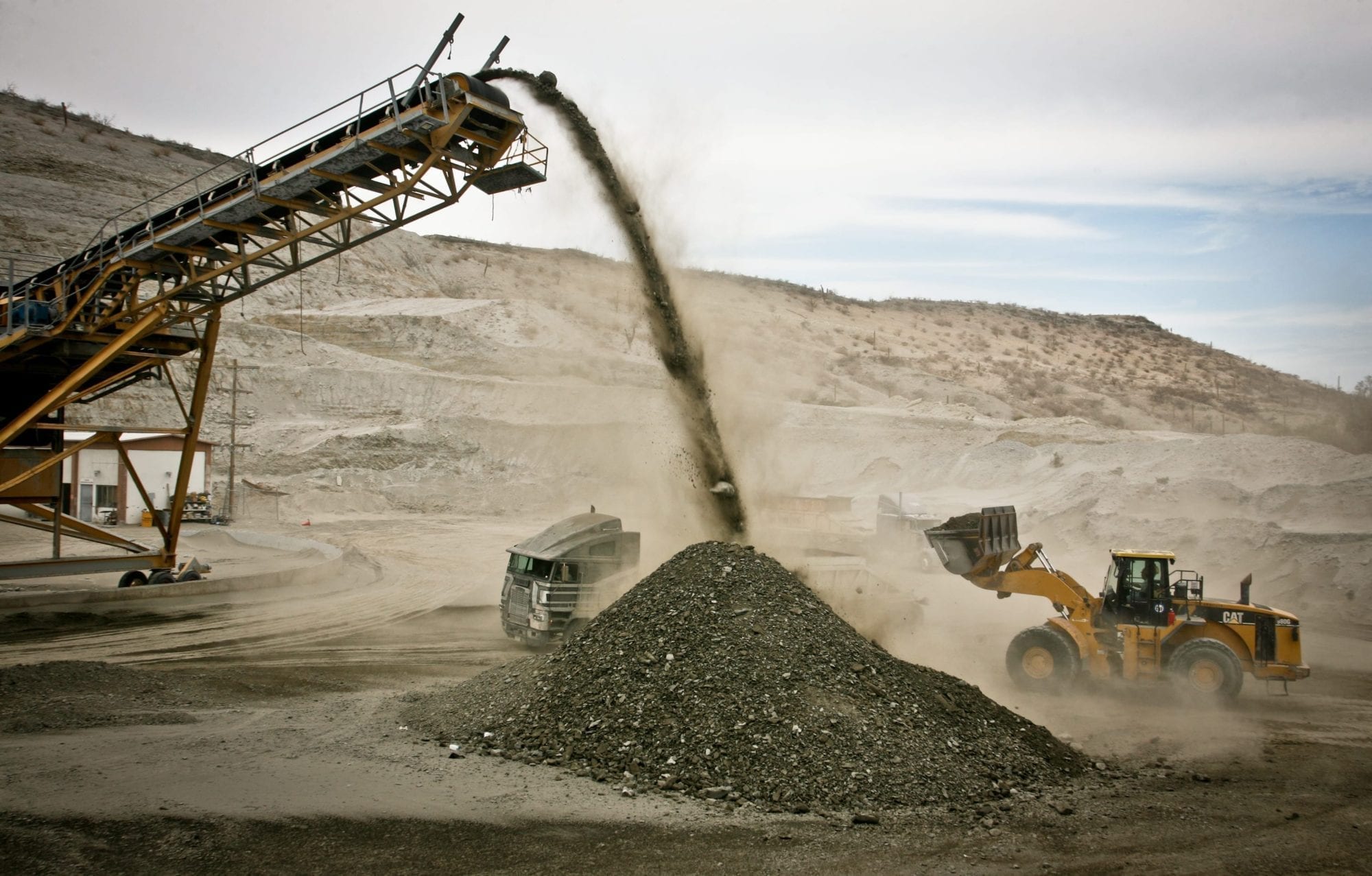
Workers operate a conveyor belt to extract rock and deposit it outside the mine. Miners load the rock onto trucks and drivers carry it to the processing plant.
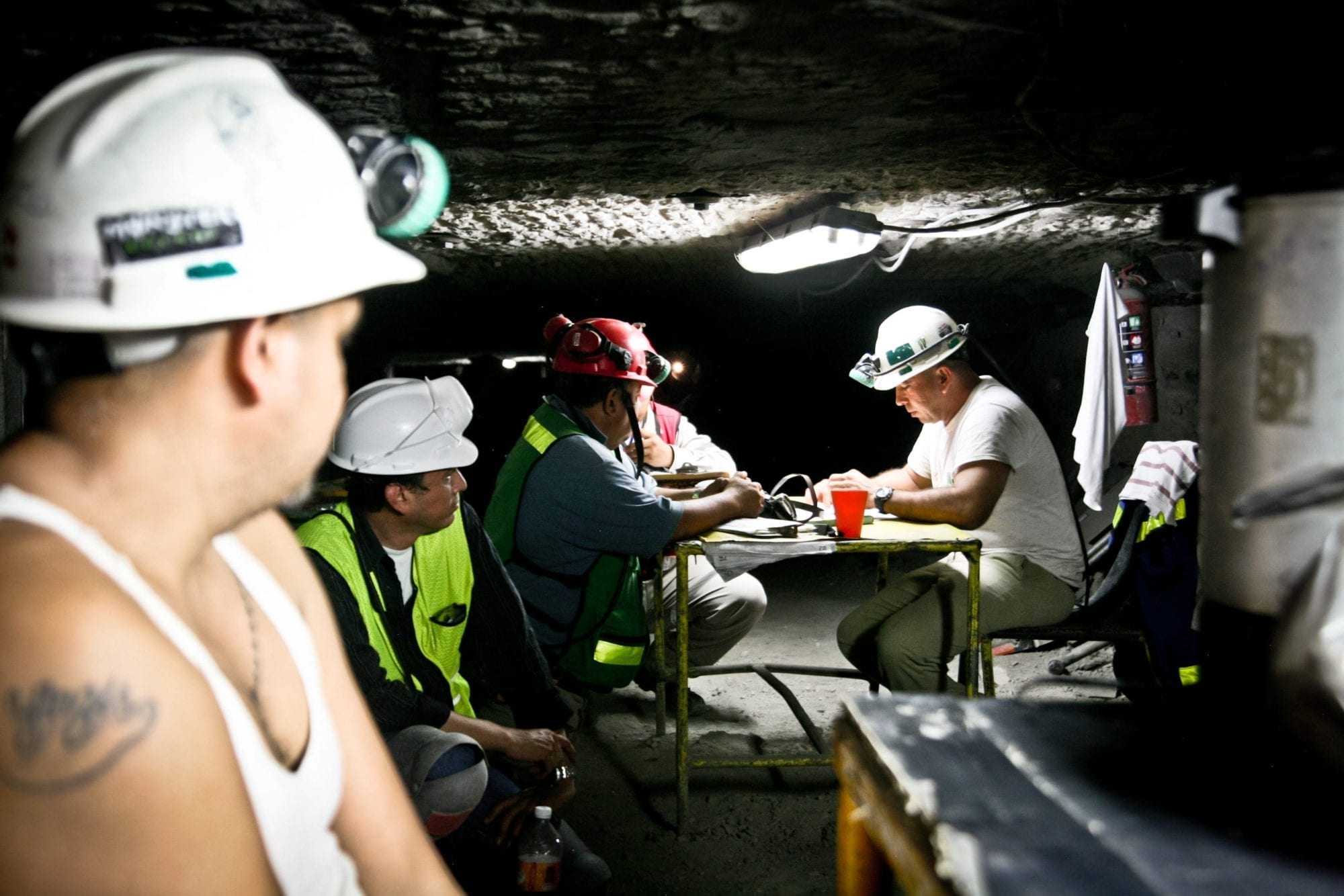
A crew of miners, a team leader and a supervisor organize their work at the excavation system in the Fenix mine shaft, where workers excavate phosphate rock, the basic ingredient for fertilizer.
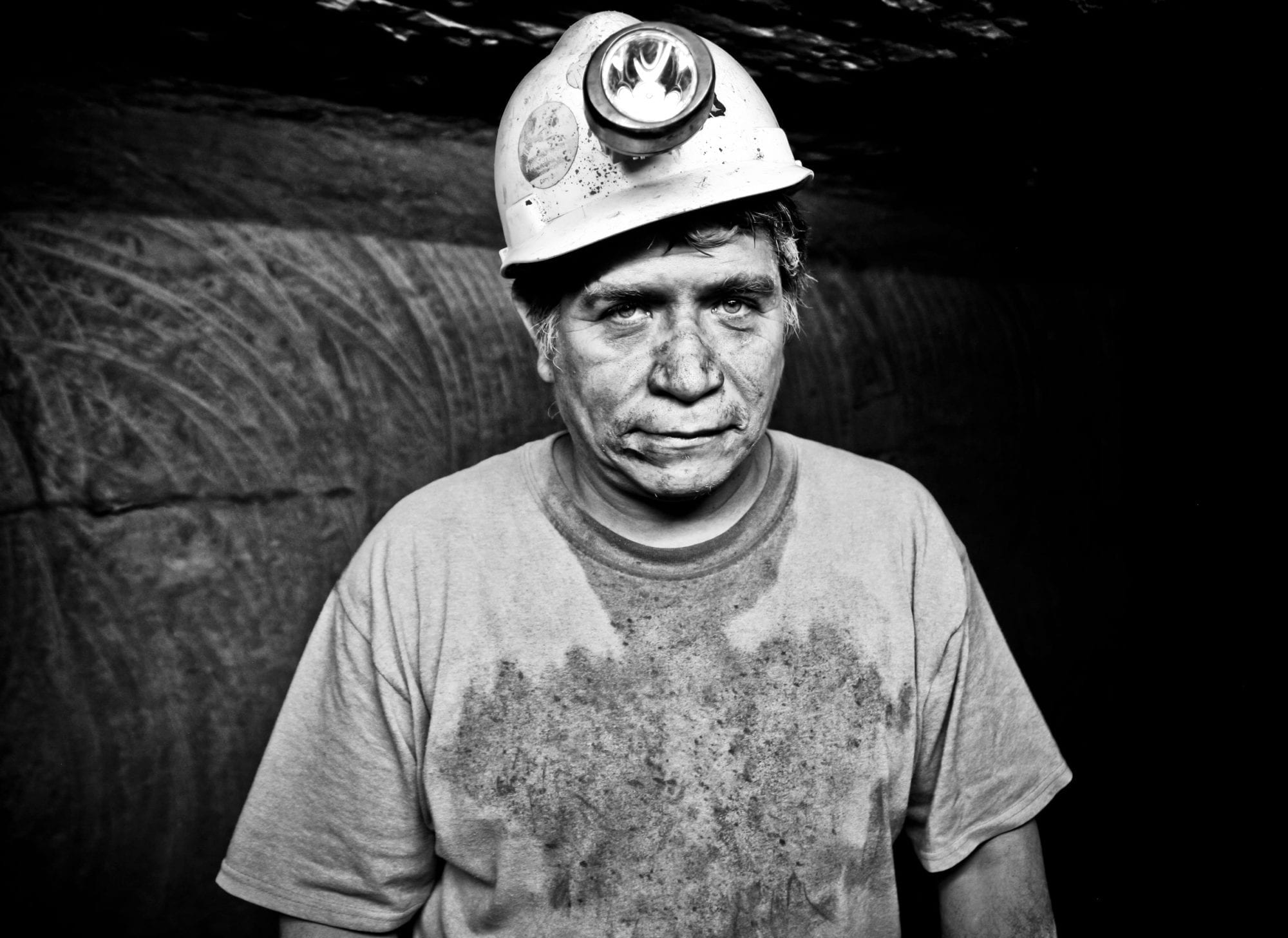
Luis Alberto Bernal Díaz at the Fenix mine, working nearly 1,000 feet below the Earth’s surface.
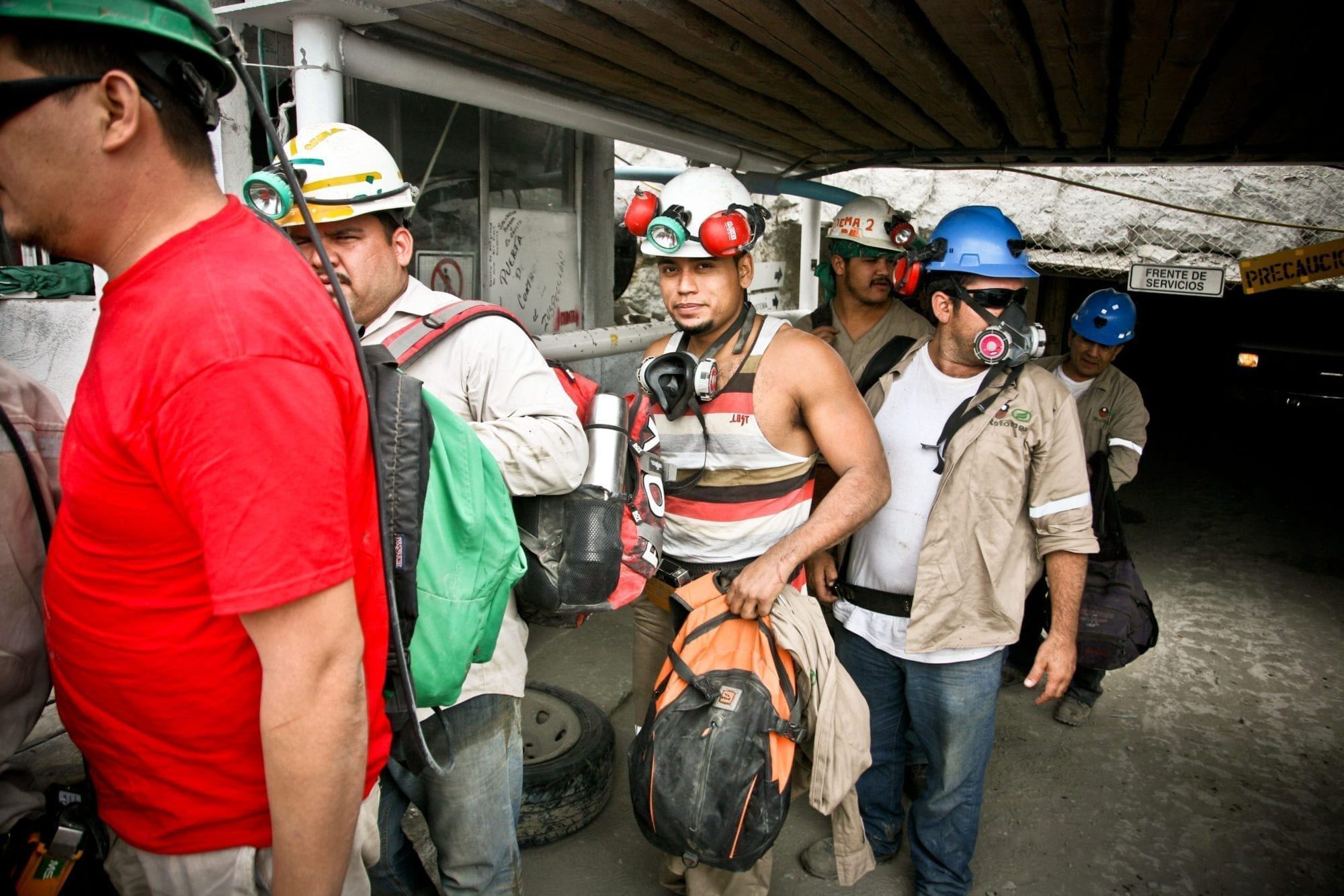
Miners in the Monje mine shaft finish the morning shift and return safety equipment such as personal protective devices and rechargeable lamps.
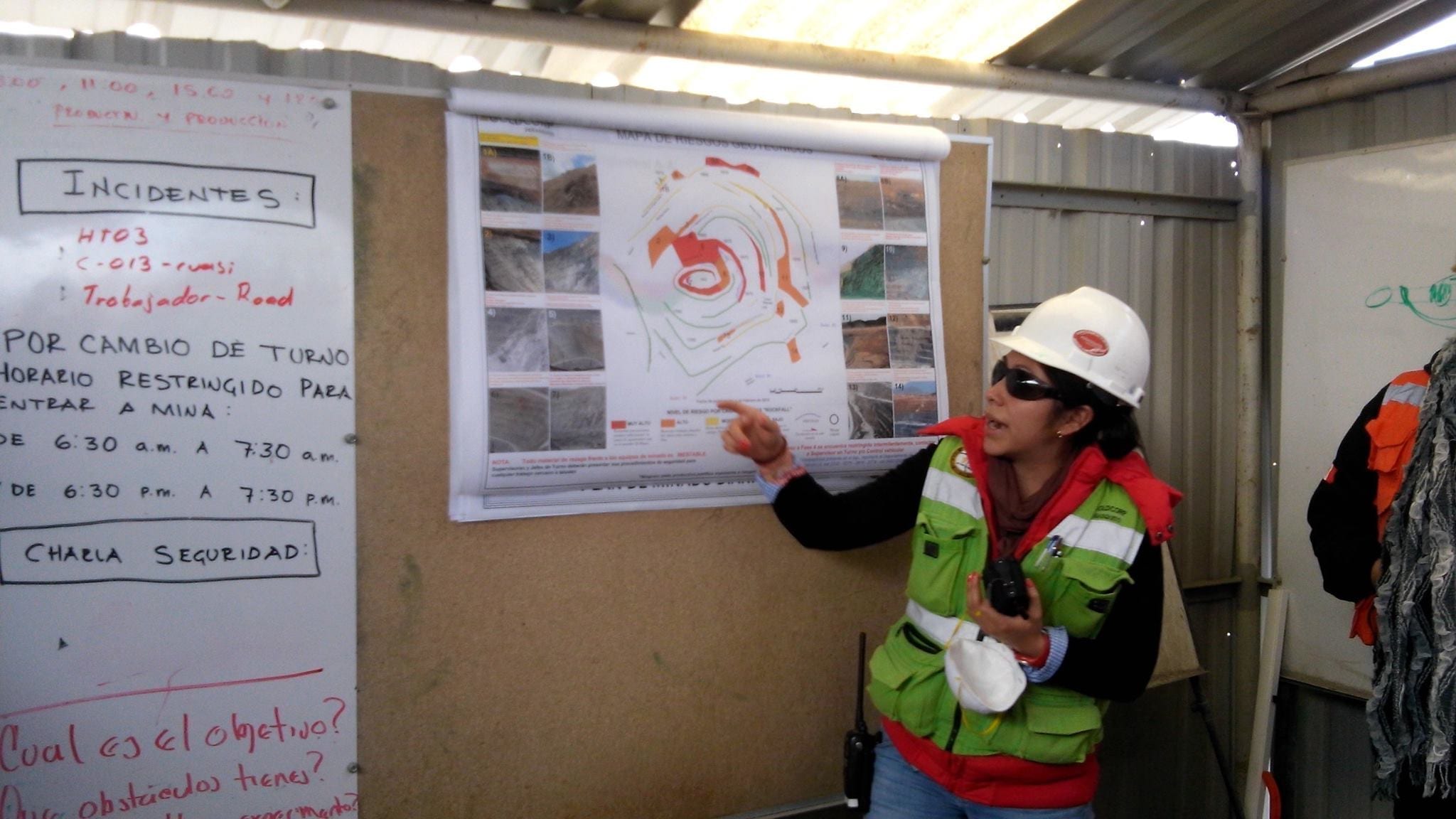
Lizbeth Garcia, a geological engineer, goes over an excavation map during a training for women mine worker members of Los Mineros. Credit: Julia Quioñez, CFO
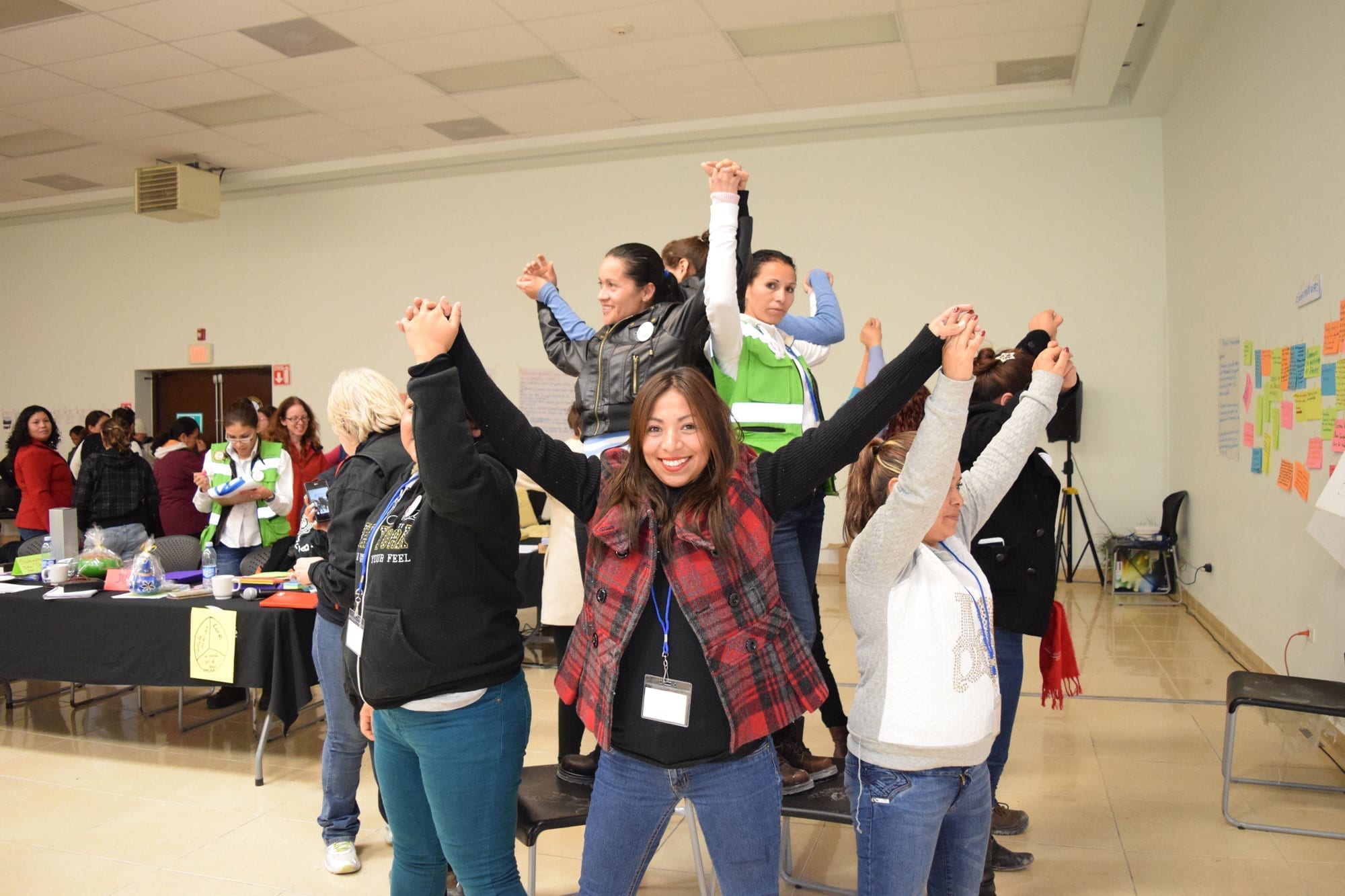
Women miners take a break during from mining, welding and related work to participate in a workshop on collective bargaining focused on strategies that include gender equality and family friendly language in contracts. Los Mineros members include Maria de los Angeles Nuñez de la Rosa (center), Alma Yadira Martinez Ramirez (top right) and Eliza Martinez Carrillo (top left). Credit: Los Mineros
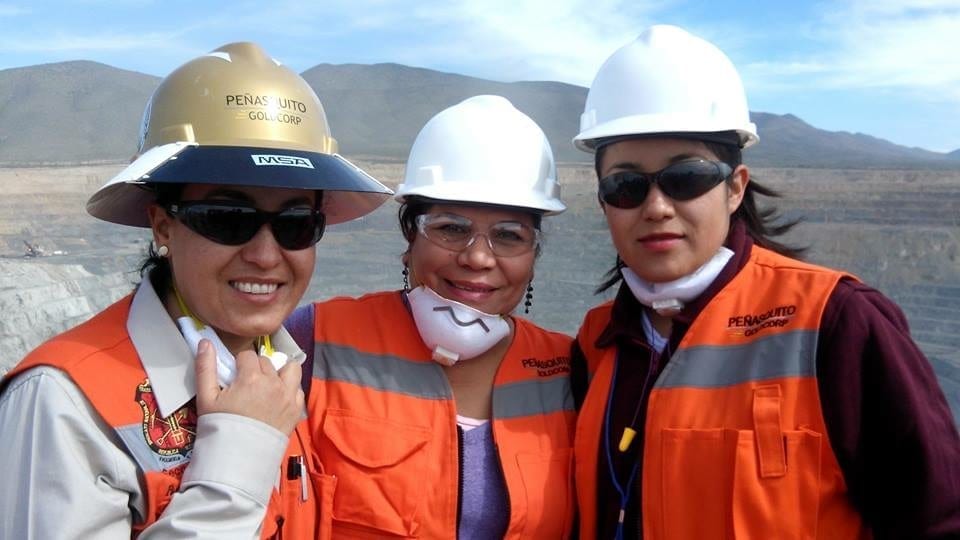
In Mexico, Ruth Adriana Lopez Patiño, from Los Mineros, Julia Quiñonez, CFO, and Mariela Sanchez Casas, Los Mineros, all founded the “Mineras de Acero” (Women Miners of Steel) training program. In February, they participated in a tour of a gold mine during a training on gender equality and women’s leadership. Credit: Los Mineros

